











 Editor Peter Adams
Editor Peter Adams
As last week marked the commemorative 80th anniversary of DDay and we at THE CARER are proud to present a special supplement dedicated to this historic event
D-Day a pivotal moment in World War II stands as a testament to the courage sacrifice and solidarity of those who fought and supported the Allied invasion of Normandy It is of utmost importance that we continue to honour and remember this day paying our respects to all who played a part in this significant chapter of history
In this supplement we have the privilege of sharing the stories and commemorations of DDay from various perspectives
We extend our heartfelt gratitude to all those who have generously shared their experiences with us Their accounts not only preserve the memory of D-Day but also educate and inspire future generations
At THE CARER, we are immensely proud to bring these stories to our readers fostering a deeper appreciation and understanding of the sacrifices made for the freedoms we enjoy today
Turning to current events the political landscape is abuzz with the release of party manifestos as we approach the upcoming elections
Notably the Liberal Democrats have put forth concrete commitments aimed at addressing the crisis in social care Their proposals offer a glim-
mer of hope for much-needed support and reform in adult social care In contrast the Conservative Party's manifesto appears to offer little in terms of actionable solutions for the sector, raising concerns about the future stability and funding of social care services
Tomorrow we anticipate the release of the Labour Party s manifesto Leaks suggest that Labour is considering a £12 minimum wage for care workers a welcome proposal (long overdue) given the essential work they perform
However, it is imperative that any discussions about wages also address the broader issues of long-term reform and sustainable funding for social care The challenges facing the sector are complex and multifaceted requiring comprehensive and strategic solutions
A White Paper – produced by the Local Government Association ahead of the General Election reveals that councils in England now face a funding gap of £6 2 billion over the next two years
This is being driven by rising cost and demand pressures to provide adult social care, children's services, homelessness support and home-to-school transport for children with special educational needs and disabilities
And as stated above the Lib Dems seem to be the only party so far with policies that will address these issues
I can also be contacted at any time at editor@thecareruk com
We would also ask our readers to follow us on Twitter @TheCarerUK and also sign up to our email newsletters at www thecareruk com/recommends/signup to have all the latest news delivered directly twice weekly
The Carer is published by RBC Publishing Ltd, 3 Carlton Mount, 2 Cranborne Road, Bournemouth, Dorset BH2
damage Views expressed within this publ cation are not necessarily those of the
responsibility for any effects, errors or omissions therefrom All rights reser ved,



(CONTINUED FROM FRONT COVER)
YEARS OF NEGLECT
Sir Ed Davey has sought to reassure voters by ruling out increases to income tax VAT and national insurance contributions and has said that they will fund its plan through tightening capital gains tax rules to raise an extra £5 billion out of the wealthiest 0 1% in the country and a £4 billion tax increase for banks
Sir Ed said “How the Conservative Party has treated our NHS is a national scandal
“Years of neglect and chaos under the Conservatives have left our health services in a state of crisis
“It is outrageous that pensioners are forced to endure the indignity of being left in hospital corridors while millions of people struggle to see their local GP or dentist
“By ending the health and social care crisis we can boost our economy by getting people back to work whilst giving people the dignity they deserve in their hour of need ”
Campaigners welcomed the promises and described them as a gauntlet to other major parties to deliver bold reform on the care of older and vulnerable adults CARE COSTS CAP
The Conservative party have re-stated their previous pledge to bring in delayed social care costs cap, saying that they would continue with plans to cap social care costs from late next year, the party’s manifesto has stated
Adult social care was not mentioned by Prime Minister Rishi Sunak in his speech setting out the party’s priorities yesterday (Tuesday)
In the manifesto, the party promised to take forward previously announced reforms and to give local authorities “a multi-year funding settlement to support social care” were it to be in government at the next Spending Review
It added: “We will attract and retain a high-quality care workforce make reforms to shape the market for older people’s housing and support unpaid carers
The Independent Care Group (ICG) welcomed the Liberal Democrat proposals but warned that they don t go far enough It has called on the other main parties to stop running away from social care and to match and beat the Liberal Democrat promises FREE PERSONAL CARE
The provider group s Chair Mike Padgham said: How refreshing it was to see a major politician put health and social care at the heart of a manifesto today
There was a great recognition that investing in social care will help save the NHS and help the economy and the country
Above all what this does today is say to the other major parties Here is our plan what are you going to do about social care?
In particular I welcome the Liberal Democrat s promise to introduce levels of free personal care introduce a carer s minimum wage the Royal College of Care Workers and reform of the carer s allowance to better support unpaid carers
“They are right that we need to bring more staff into social care, and improving their pay will help towards that We are currently short of 152 000 social care staff and will need more than 440 000 more by 2035 VAGUE PLEDGES
He also gave a cautious welcome to Conservative promises of a cap on care costs outlined today (June 11) in the party s General Election manifesto saying: Delivering the Dilnot recommendation of a cap on care costs would be positive and would help people cope with the cost of care and avoid having to sell their homes to pay for it
However this measure has been promised time and time again and has been repeatedly kicked down the road – I think before we cheer this news we would want to see it actually happen
Aside care costs the Conservatives promised to give local authorities a multi-year funding settlement to support social care and to attract and retain a high-quality care workforce make reforms to shape the market for older people s housing and support unpaid carers
Mr Padgham said such “vague pledges” did not deliver the bold reform that social care needs
“I hear Mr Sunak say that the public are frustrated with him and the Conservatives and say that, yes, I am frustrated that once again social care has been relegated to a paragraph in the manifesto,” he added “It is so high in the party’s priorities that it was not even mentioned in this morning’s speech The Conservatives continue to run away from social care ”
“We see very little sign of the reform and investment needed to end the current crisis There is no promise to bring care to the 1 6m people who can t access it no measures to properly reward staff and tackle the 152 000 workers shortage and no long-term vision to create a National Care Service and provide proper cradle to the grave care for everyone who needs it
POSITIVE VISION
Responding to the Liberal Democrat manifesto Dr Jennifer Dixon Chief Executive of the Health Foundation said:
The Liberal Democrat manifesto sets out a positive vision for tackling the UK s fraying health Notably The Lib Dems are so far the only party to commit to meaningful action to improve the neglected social care system
“On social care, the Liberal Democrats policy to introduce free personal care would be an improvement on the current threadbare safety net, though the funding earmarked for this will not be enough Plans to increase wages and improve the professional status of care workers are also positive, but the scale of the challenge shouldn t be underestimated, with 1 in 10 posts in the sector currently vacant AMBITIOUS WISH LIST
Commenting on the Conservative party manifesto Dr Dixon said: ‘The Conservative manifesto is an ambitious wish-list but it’s hard to have confidence in delivery when there is so little detail on how the plans will be achieved
Economic growth is being held back by record numbers of people reporting long term health conditions that keep them out of the workforce Yet this manifesto offers nothing to get people back into work or
improve their health, while deep cuts to benefits will simply drive more people into poverty and worse health
‘While it is positive that the Conservatives have again promised to ‘fix’ social care supported by a new multi-year funding settlement it is hard to take this pledge seriously after more than a decade of delay and broken promises SOCIAL CARE FIRST
Commenting on the Lib Dem Manifesto National Care Forum CEO Vic Rayner OBE said: For the first time we have seen a major political party thinking social care first when launching its election manifesto The vision with which the Liberal Democrats manifesto is framed should help a lot of people to see the positive impact care has on improving lives for individuals and wider society This makes a welcome and refreshing change to how care has previously been positioned as an endless series of issues to be kicked around and ultimately dismissed
As well as pledging to introduce free personal care for older or disabled people at home the Liberal Democrats have also outlined much needed support for the care workforce, including a workforce plan, improved pay and better recognition and career progression This ambition aligns with our calls for measures that start to create parity of esteem for care workers when compared to their NHS colleagues and establishes care as a career to be pursued like any other ” RESTATING PREVIOUS PROMISES
Commenting on the Conservative party election manifesto Ms Rayner said “Disappointingly this Conservative election manifesto leaves social care firmly in the shadows Despite the millions receiving care the 1 6 million working in care and the estimated 10 million unpaid carers the detail about social care stretches to a meagre 13 lines in the printed document and no mention whatsoever in the PM s speech The main thrust involves restating the previously promised and repeatedly delayed cap on care costs and workforce reforms as featured in the People at the Heart of Care
It is of concern that the proposals to reduce taxes seem predicated on a pledge to make £12bn worth of cuts to welfare and benefits which often represent a fundamental support to people who are receiving care and support Whilst the policy intent may not be focussed on this cohort the rhetoric surrounding this has the potential to negatively impact people with learning disabilities and/or autism and those with physical disabilities – many of whom access benefits in order to work and live independently ”
“The only new and welcome measure that shows even the slightest acknowledgement that there are urgent pressures in system is the pledge to give local authorities a multi-year funding settlement We need to see more detail on this ”
She concluded: "It s vital that people drawing on care are given the opportunity to add their perspectives to election manifesto announcements We are working with our members to gather together the reactions of people who draw on care and support which will give a strong indication of where parties are doing things right and where others are falling short

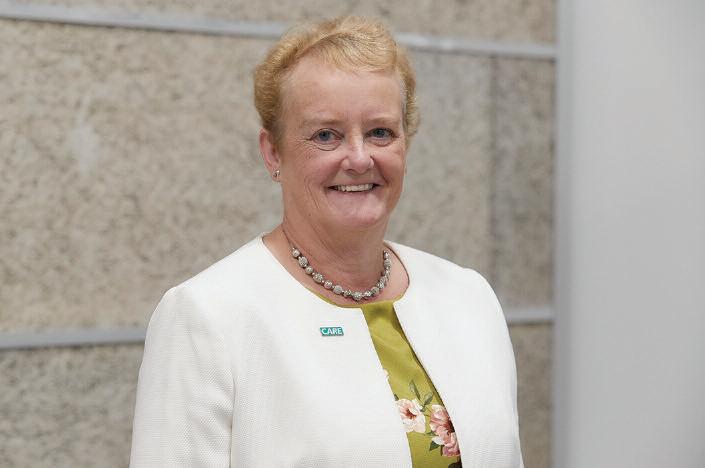
The General Election will take place on 4th July and whoever forms the next government will face the challenge of overhauling the UK’s social care system
In a series of three articles Melanie Weatherley MBE, Chair of the Lincolnshire Care Association will set out the challenges the next government will face and define her vision for what needs to be done to make UK social care fit for purpose
Her first article addresses the challenges posed by the social care workforce and how people working in social care can be better recognised motivated and rewarded
Social care organisations in Lincolnshire, such as care homes, nursing homes and domiciliary care providers face a wide array of challenges – but no-one can doubt that the thorniest problem they face has to do with their workforce
Around 1 5 million people work in the adult social care sector in England – more than the number of people who work in the NHS But
around a quarter of this workforce is on zero-hours contracts
Nationally the social care sector faces a number of long-standing and seemingly intractable workforce challenges
high vacancy rates – Skills for Care estimates that around 10% of roles in adult social care were vacant in 2022/23 equivalent to approximately 152,000 vacancies
rising demand
high staff turnover – Skills for Care estimates that around 390 000 peo-
ple leave the sector every year
few opportunities for career progression
no standardisation of training and qualifications
• low pay
It’s clear to everyone that something must be done to make adult social care sustainable in this country Successive governments have promised a great deal but failed to grasp the nettle – so the next government really must get to work quickly
As far as the workforce is concerned I have three recommendations for the next Secretary of State for Health and Social Care RECOGNITION
As a nation we need to recognise of the importance of the social care workforce Our workers don’t merely support the NHS by enabling people to be safely discharged from hospital; more importantly they work with adults who may have a variety of challenges to make the most of their potential Good social care workers allow service users and care home residents to live gloriously ordinary lives Think for example of someone who has physical challenges but who is able to carry on working because a reliable care worker visits them every day to help them get ready (Helping with clothes and make-up can sometimes be just as important as helping people with their medication ) FAIR PAY
With greater recognition should come better remuneration for social care workers In this country we expect people to undertake skilled
responsible roles in social care in return for little more than the minimum wage By definition this means they’re among the lowest paid workers in the country And yet the work they do is crucially important, and we all might need their help one day
The current government is in the process of introducing a new career pathway as set out in the White Paper ‘People at the Heart of Care’ Sadly while there is funding available for training and for recording training there s no mention at all of paying care staff more as they move up the ladder Care providers would love to reward their staff as they move along their career pathway, but the fees paid to care providers often don t allow for this REGULATION
Can you believe that Florence Nightingale the Victorian founder of modern nursing, didn t believe that nurses should be regulated like other important professions? Times and attitudes have changed since her day and nurses are now highly regulated just like doctors teachers and many others Before we can improve the recognition of care workers as professionals, we probably have to regulate their profession in the same way as nurses doctors and teachers
There are lots of people who don t agree with this and I appreciate that achieving regulation for the sector might be difficult in the short term But we have a large workforce and a level of staff turnover which is far too high; even if registration of the whole profession might have to be filed under “too difficult” for now, we need to take steps towards achieving this goal at some point Perhaps we could start with Registered Care Managers and move forward from there
It


Councils in England face a funding gap of £6 2 billion over the next few years according to a report
Th gap is being driven by rising cost and demand pressures to provide adult social care children s services homelessness support and home-to-school transport for children with special educational needs and disabilities
The warning comes as a new Local Government White Paper sets out how a new relationship between central and local government which provides long-term financial certainty and empowers councils is the only way for whoever forms the next government to solve the issues facing the country
The White Paper – produced by the Local Government Association ahead of the General Election – also includes new analysis which reveals that councils in England now face a funding gap of £6 2 billion over the next two years This is being driven by rising cost and demand pressures to provide adult social care, children’s services, homelessness support and home-toschool transport for children with special educational needs and disabilities

Such pressures are increasingly leaving councils with less funding to provide universal local services that people rely on every day – such as keeping streets clean filling potholes and tackling anti-social behaviour
A recent LGA survey found two thirds of councils have already had to make cutbacks to local neighbourhood services this year (2024/25) including waste collections, road repairs, library and leisure services – as they struggle to plug funding gaps
The LGA is calling on all political parties to commit to a significant and sustained increase in funding for councils in the next Spending Review alongside multi-year funding settlements and plans to reform the local government finance system This year saw the sixth one-year settlement in a row for councils Without this the LGA is warning that cost and demand pressures will continue to stretch council budgets to the limit in the coming years leaving more councils of all political colours and types unable to deliver their legal duties for their residents and putting vital services at further risk of cutbacks
However the LGA said it is not just about local government having enough money to provide services for their communities
The White Paper calls on the next government to urgently commission a major review of public service reform to understand how all public services can work together within their local communities focusing on a joint approach to investing in more preventative services for people in need and reducing demands on current costly and high need services such as adult and children s social care
Focussing on how councils when given the powers can shape their local areas the White Paper also makes clear that economic growth can only be achieved if every local economy is firing on all cylinders
To unlock the potential of people and their communities, the LGA has set out how councils can play a
vital leading role in unlocking labour markets creating jobs plugging skills gaps and increasing productivity This includes devolving powers to run local skills and employment schemes ending fragmented short-term growth funding pots and backing local climate action
OTHER PROPOSALS IN THE LOCAL GOVERNMENT WHITE PAPER
INCLUDE:
- Giving councils and combined authorities the powers to build more affordable good quality homes at scale for people in the areas where they are needed with five-year local housing deals for all areas of the country that want them combining funding from multiple housing programmes into a single pot
- A renewed focus on prevention, including immediate implementation of the Hewitt report recommendation that at least 1 per cent of NHS spend is invested into preventative services over the next 5 years ensuring councils can provide the right support for people at the right time
- Reforming adult social care ensuring it is adequately funded with councils and the NHS working better together to support people in need and a focus on prevention and recovery services including support for the voluntary sector who are a crucial part of the adult social care system
- Reviewing early years education and childcare to ensure that the workforce has the right skills and training and ensuring early years entitlements are properly funded, with councils fully resourced to deliver their statutory duties
- Building a stronger partnership between councils, the NHS, and schools, backed by new powers and a separate inclusion judgement in the Ofsted school inspection framework that meets the needs of children and young people with SEND and enables more children to remain in mainstream schools
Cllr Kevin Bentley Senior Vice Chairman of the LGA said: “We all rely on local government to keep our streets clean collect our bins fix our potholes build more homes create jobs keep children safe and support people of all ages to live fulfilling lives
However a funding gap of more than £6 billion facing local services over the next two years – fuelled by rising cost and demand pressures – means a chasm will continue to grow between what people and their communities need and want from their councils and what councils can deliver
“On July 5 whoever forms the next government will be faced with many challenges whether it is building more affordable housing improving care for adults and children reducing homelessness boosting inclusive growth or tackling climate change
“Local government s offer to the next government is huge Respect us, trust us and fund us By working together as equal partners we can meet the fundamental long-term challenges facing our communities


Being a parent carer of a child with complex health needs can be “daunting and frightening” but that does not stop you “fighting for them says a mother whose son requires 24-hour care within a Northampton mental health hospital
Jane Hillier has a 19-year-old adopted son who has a learning disability autism and experiences psychosis She has bravely shared that bringing him up has been hard at times, but she has never stopped loving him and ensuring he gets the right care
Jane’s son is now living in a bespoke supported transition service within the grounds of St Andrew s Healthcare where he has staff looking after him around-the-clock
Speaking out during Carers Week which started on Monday June 10, Jane said being part of the carer community is very special to her
Jane, who also works full time as an emergency call handler, said:
We as a community of parent carers we support one another we love one another and we understand and accept when we re upset we support we hug When we re happy we celebrate the good moments
“So, with Carers Week, I just want to say a big thank you to all of us out there Some of you may see this video and know I m saying this to you: you do a fantastic job and we should be recognised for it
The mother of two even runs a Facebook page for carers and adopted parents who are looking for support from other parents in a similar position called Pre and Post Adoption Support for those Adopting
She added: Being a parent carer of a child with very complex very challenging needs, is very daunting and very frightening But, because it’s your child and you love your child you will do anything to protect and help them As parent carer you have to fight for every service
Jane s son s mental health began to decline during the pandemic and he was admitted to a hospital close to where they lived However due to his other complex health needs, the environment for him did not help and he became more unwell
Jane said: He got worse and it was awful to see To watch your son decline in front of your own eyes was heartbreaking We fought and fought, and eventually we got him moved to St Andrew’s Healthcare’s Child and Adolescent Mental Health Services (CAMHS) where he really started to improve “When he turned 18 St
around he has his own bathroom so he can clean and dress himself He has an amazing relationship with the staff who are always on hand to help him and he has come on leaps and bounds ” St Andrew s Healthcare s CEO Dr Vivienne McVey said: Lime Tree Cottage is a single-occupancy

the children pointing out each one with joy and amazement Joan’s eyes sparkled as she examined the children s work She read their writings praised their efforts, and even corrected a spelling mistake embodying the adage once a teacher always a teacher The
children were keen to communicate eagerly raising their hands to gain

The Conservative Party has announced a pledge to build 100 new GP surgeries and modernise a further 150, should they win the upcoming general election
The party says it would also expand the number of treatments pharmacies can offer without people seeing their GP first
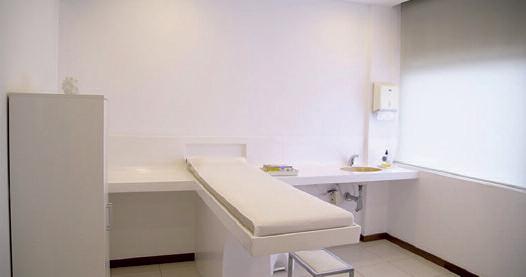
Prime Minister Rishi Sunak said the plan would make it easier for patients to get the care they need and help relieve pressure on hospitals
The Tories said they wanted to expand the Pharmacy First scheme which was launched in January and allows people in England to go to their local pharmacy for seven common conditions rather than their GP as well as get a prescription for the oral contraceptive pill
Under the party’s plans for the next parliament, pharmacies would also be able to offer contraceptive patches and injections as well as treatment for more conditions, including acne and chest infections
It said this would free up 20 million GP appointments once fully rolled out
The party has also pledged to build 50 new Community Diagnostic Centres, which it said would deliver a further 2 5 million tests a year once scaled up
The plans, expected to cost £1bn per annum would be paid for by cutting the number of NHS managers to pre-pandemic levels and halving management consultancy spend across government
It said an overhaul of planning guidance would also help pay for 100 new GP surgeries and 150 surgery modernisations by ensuring health gets a bigger proportion of contributions from housing developers
Mr Sunak said: “As part of our clear plan we are investing in community services making it quicker easier and more convenient for patients to receive the care they need and help to relieve pressure on hospital services
Health Secretary Victoria Atkins said: Pharmacies GPs and Community Diagnostic Centres are the backbone of our NHS Because of bold action we have taken they are more accessible in more places for more people ”
The National Pharmacy Association said the plan to extend the pharmacy scheme was an “affordable way to cut waiting times”
But the association s chief executive Paul Rees said community pharmacies were currently “chronically underfunded” and more investment to was needed to prevent closures and the system being irreparably damaged
The Conservatives said 98% of pharmacies had signed up to the scheme and those already involved were receiving more funding
Thea Stein, Chief Executive of the Nuffield Trust said: “Moving care closer to people s homes is absolutely the right aspiration if we are to move the NHS away from being a sickness service We will only truly address the healthcare needs of people living longer often with multiple health conditions if we invest in the kinds of services that support people to manage their healthcare needs So an expansion of pharmacy first and more diagnostic centres is welcome
But let s be under no illusion: these are small-scale proposals and they come after years of money flowing away from community services and towards hospitals Our analysis published just this week showed that funding growth for acute hospital health services hugely outpaced growth in funding for services provided closer
to home Spending on community services – which covers health visiting, district nursing and school nursing – was cut in real terms in three out of the six years to 2022/23 – and spend per person fell by 4 2% when patient need is included
Moving care closer to home should not be a “pick and mix” of different proposals however laudable they might be individually It’s about sustained, holistic investment in and support for a range of services that provide most of the healthcare in this country It’s about building up these services to support people’s health and wellbeing in their own right rather than simply to alleviate pressures on hospital It s about moving our collective gaze beyond the hospital and matching that aspiration with the right funding and right priorities to make it work
Matthew Taylor, chief executive of the NHS Confederation, said:
To deliver the step change in health and wellbeing that this country needs, we need to increase investment and support for services that are delivered in the community and close to people s homes so we welcome these proposals This is the right direction of travel if we want to place the NHS on a more sustainable footing
“For most people, being treated at or close to home is what is best for their health and how they want to be cared for and it s also cost-effective for the NHS To make this a reality we need to see whoever is elected next shift more resources into primary care community services and social care But as our survey of NHS leaders this week revealed many NHS organisations are having to make short term cuts to their clinical and administrative staff to balance their books We can’t let our long term ambitions to expand the NHS workforce and shift more care into the community be derailed by short term cost pressures
The Conservatives proposals to extend Pharmacy First will build on the success of this scheme in widening the treatments that pharmacists are providing This is not only good for the public in accessing safe and convenient care for minor conditions more quickly but it is also helping to ease some of the considerable burden on GPs and their teams But pharmacy is also experiencing the same staffing and estate issues as general practice, so any expansion of the scheme would need to consider how best to address that capacity crunch
Overall this is the right direction of travel but it requires more support and investment for primary care community and social care services – and successive governments have rarely delivered on this ambition We have an ageing increasingly sicker population but with only flat funding to deal with rising demand for care, public spending plans for 2025 onwards are looking perilous The Conservatives proposals to fund their plans by further cutting NHS management costs needs to be considered carefully against the fact that the NHS is already under-managed and with managers playing a key role in efforts to improve NHS productivity
The transition to delivering more care in the community is therefore right but likely to require extra funding, especially in capital given the primary care estate and other parts of the NHS estate, are in a poor state From our own research, we know that investing in primary and community care services delivers the greatest economic return We therefore encourage all parties to make this a key component of their manifesto commitments on health and care
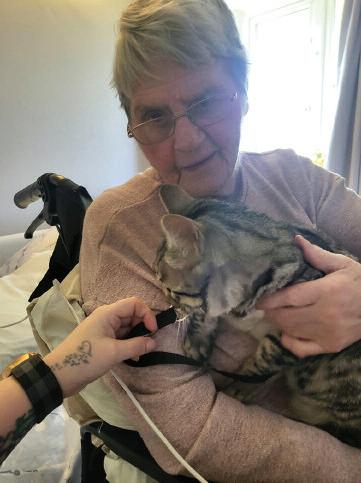















economies

A visit by therapy goats to a dementia care home in Glastonbury sparked a delightful reaction from a resident that came as a surprise to staff Tanya Sheasby who runs The Little Farming Company said: This gentleman normally has very little interaction or conversation with any staff or visitors according to the team at St Benedict’s, but he responded to our pygmy goats in such an engaged way thanking me and stroking and making eye contact with them It was really moving
William Merivale assistant operations manager for St Benedict s Nursing Home said: It has long been recognised that animals can have a very beneficial effect on people’s moods so we were looking forward to the visit never having encountered therapy pygmy goats before
“There’s a lot of scientific evidence about the positive effects of therapy animals in general, showing an increase in the body s happiness-boosting hormones – oxytocin and dopamine – and a lowering of blood pressure and cortisol, an important stress indicator
And Tanya s goats were a huge hit with our residents they re gentle and responsive really small – just the right size to sit on your lap – and they don’t wriggle or kick




She told us that people never seem to be afraid of them They were one of the earliest animals to be domesticated by man apparently so perhaps our lack of fear is cultural or comes from experience Whatever the reason we all thought they were absolutely adorable ”
Tanya said Our pygmy goats may only be tiny but have big characters they’re affectionate curious and gentle and they adore the company of other goats and humans They have been specially chosen by us for their calm temperament and love of attention

Our goats are weaned at around 12 weeks and put into small groups for Goat School where we train them to be calm confident gentle trusting and enjoy interaction with people
The younger goats will sit on a lap happily whilst the older goats will stand quietly beside a chair to be stroked They never bite or cause trouble
Our goats don t have horns – we have them disbudded under anaesthetic by a vet when they are young, as a point of safety in their role as therapy animals
We were made very welcome at St Benedict s I found the staff to be very progressive in their ideas and just lovely with the residents ”

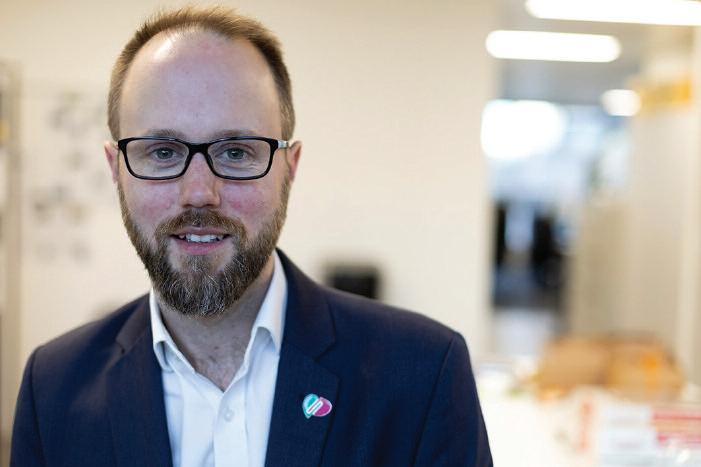
Too many of us know the devastating impact that a diagnosis of dementia without the right support can bring both for the person with the condition and for everyone around them One in two of us will be affected by dementia in our lifetime
Added to that for too long and through successive Governments people with dementia have been left behind in national policy With no cure and painfully little consistent and reliable support in place people find themselves left to cope alone with complex and ever-changing challenges
Yet with the right political will dementia care can be fixed In a few weeks the polls will open for the General Election and
across the UK voters will have the power to elect a new UK Government
Incoming politicians on all sides will be faced with a huge and growing health crisis During the first year of the next parliament, it is estimated that the number of people living with dementia in the UK will pass one million
That is why this election must be the one where dementia care is finally put on the agenda Whoever walks into 10 Downing Street on the 5th July needs to enter it with a determination to tackle the health and care inequalities that dementia still brings
As a starting point here are four tangible and simple improvements that will begin to address the areas where people need support the most:
Improved expert and personalised support for people after a dementia diagnosis is urgently required Following a diagnosis, only 25% of people affected by dementia reported they or the person they care for had received their annual dementia review within the past year Two out of five (39%) said they last had a review at least two years ago
The NHS continuing healthcare funding process can be fixed
According to Ipsos UK research commissioned by Dementia UK, nearly a quarter of people surveyed (24%) whose family member or friend had tried to access NHS continuing healthcare funding disagreed that the system was fit for purpose – whether they had been successful or not
Young onset dementia (where symptoms develop before the age of 65) must see improved diagnosis rates and age-appropriate support
Published dementia diagnosis rates exclude people under 65 and there is only an estimated 45 9% diagnosis rate in people under the age of 65
(compared to 62 2% in those aged 65 or over) with an average time to receive a diagnosis twice that of older people
And lastly one in four people in hospital beds are estimated to be living with dementia yet only 5% of hospitals in England have a dementia specialist Admiral Nurse service in place Beyond the human impact, our research shows that putting dementia specialist nurses into acute settings saves money across health and care budgets A new Government can work with us to increase access to dementia specialist nursing in hospitals
The evidence is there, people affected by dementia are waiting, and Dementia UK and others stand ready to work with whoever is willing to take on this challenge All that s left is to secure the political will
Dementia UK s specialist dementia Admiral Nurses know first-hand that when people affected by dementia have access to the right support at the right time it can be life changing It helps people up and down the country feel more confident, hopeful and in control
We are doing everything in our power to support as many people as possible but we can t reach everyone We need the next Government to take a strategic approach across systems settings and policy areas to improve the lives of everyone affected It won t be easy but we know that change is possible and we know how it can be achieved
Our vision is one where people with dementia, and their families and friends can access the tailored specialist care and support they need when they need it – giving them the best life possible for as long as possible You can join thousands of us who believe in this and want the next Government to hear that message here: www dementiauk org/put-dementia-on-the-agenda/

Wendy Smith MBE a remarkable woman with a celebrated career of service and adventure has chosen to continue her life’s journey at Frome Nursing Home Wendy s diverse life experiences from serving in the Royal Navy to receiving an MBE from Queen Elizabeth II, reflect her independent and adventurous personality Wendy's journey began with her training at HMS CERES in Yorkshire, followed by a draft to HMS Victory Serving in Malta between 1958 and 1959 she laid the foundation for a life rich in travel and service After leaving and later rejoining the Navy Wendy s career spanned various roles and continents including South Africa where she became a travel consultant and tour guide in Johannesburg from 1964 to 1984 Her global expeditions allowed her to share the wonders of the world with many clients
In South Africa Wendy s passion for sports led her to coach and administrate badminton in Southern Transvaal (now Gauteng) for 18 years Her dedication earned her a position on the Board of the South Africa Badminton Union as Convenor of Coaches Her sporting journey continued in England where she assisted the England Team Manager at the Badminton Association of England Headquarters in Buckinghamshire
Wendy returned to South Africa in 1986 taking on a pivotal role in the South African Naval Cadet Corps and working with the SPCA (Society for the Prevention of Cruelty to Animals) Her career resulted with a notable nine-year occupation at the British Consulate in Cape Town, where she served as Personal Assistant to the Consul-General Wendy s exemplary service was recognised when she was awarded the MBE by Queen Elizabeth II in Cape Town on 25th February 1998
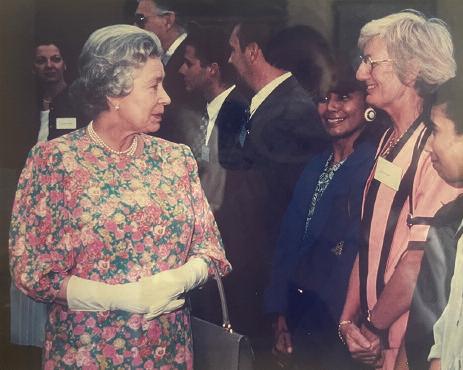
Today Wendy now lives at Frome Nursing Home a place that nurtures independence and encourages a continuation of life for its residents I was lucky enough to visit and talk with Wendy here in Frome, alongside her Niece Sharon who resides in both England and South Africa Over a cup of tea and biscuit I got to understand that Wendy is a very independent person who takes pride in looking after herself which is something that the care home supports her with
Frome Nursing Home is dedicated to creating a safe and welcoming space that feels like home ensuring that residents can maintain their independence and dignity
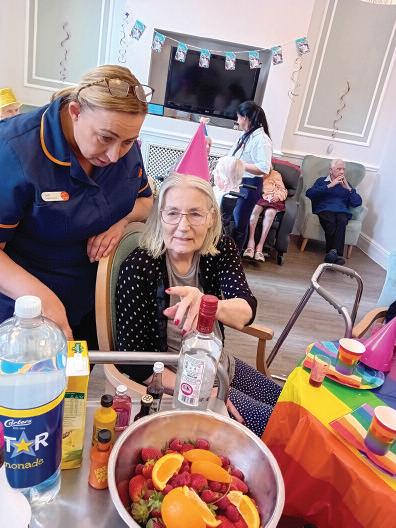
Residents at HC-One Wales s Quarry Hall Care Home in St Mellons Cardiff took part in an exciting ‘Cocktail Day’ this month where they got to taste lots of new flavours as well as make and name their own cocktails
Victoria Meakin Group Development Chef at HC-One visited the residential nursing and dementia care home on Tuesday 14th May 2024 to host a ‘Cocktail Day’ event for residents
The idea of the cocktail days is to get residents involved in the preparation of the items they consume and have the opportunity to taste different flavours while having a lot of fun doing it!
Victoria kicked the event off by introducing herself to the ten residents four colleagues and relatives in attendance and what they could expect from the day which involved dressing up trying an array of unique cocktails, and even make their own concoctions
Everyone was given two rum-based cocktails and a vodka cocktail to try first which went down well Colleagues commented that it was lovely to see the residents’ reactions to the new drinks and once everyone had enjoyed the testers some asked for
Ron Hussin resident at Quarry Hall said: The kitchen has done us proud with the buffet!”
As the background music played to get everyone in the party spirit everyone had a fabulous time and really enjoyed the experience
Sarah Hickman aged 104 who resides at Quarry Hall remarked: “I need to come to these things more often, I have had a lovely time!
Fellow resident Alexis Lamplough, joked: “We need more vodka in the cocktails!
Carla Arcanjo Home Manager at Quarry Hall said
“The feedback from the residents about the cocktail day has been utterly amazing! Everyone enjoyed themselves and experimenting with the different flavours
It certainly got everyone in the mood for summer!
Victoria Meakin, Group Development Chef at HC-One, commented:
“A fabulous time was had by all! The residents had lots of fun with the cocktails Quarry Hall is a wonderful home every staff member got involved and was willing to help
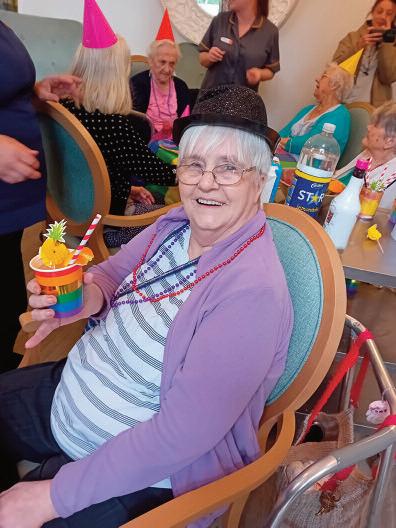
“A huge thank you to Alex and his kitchen team for allowing me to make a mess in their kitchen; they were all a massive help!
As part of Quarry Hall’s extensive activities and wellbeing plan, the team hope to host more events like this very soon


Regardless of who wins the race to 10 Downing Street there are some clear priorities that, as a leading health and social charity care provider, we at AFG believe need to be addressed as soon as the die is cast in early July
Although there is no doubt that those awaiting necessary treatment need to be seen as soon as possible the NHS waiting list and backlog rhetoric masks the real tsunami that is hitting the NHS – the mental health crisis
We know that public mental health resilience has declined rapidly in the past five years – the charity MIND estimates that one in four people will now experience a mental health problem of some kind each year in England That has increased from one in six in 2014 according to the Mental Health and Wellbeing in England survey undertaken by the government Or - put in real terms - an 8 5% increase or a staggering 14 million people today suffering from a mental health condition
And the vector is only going in one direction The new government needs to prioritise mental health services in the NHS and fast It needs to implement clear and quick reform of the Mental Health Act, invest more in mental health funding at both a community and in patient services level and increase the capacity of provision to meet demand
How to fund elderly care has become the campaigning conversation yet there is
By Ian Pritchard, CEO of Alternative Futures Groupa forgotten but just as important group in society unseen - the 1 8m adults who are registered with a learning disability and the millions of others who need special care and support to live normal lives
For far too long they have been treated as second class citizens neglected in funding and prioritisation within social care If the party who gains power has one clear focus it needs to bring greater public awareness of adult disability equity in its funding and fair policies in place that puts those adults needing social care whatever their age, front and centre of the political agenda For far too long adult social care has
learning disability have a voice and a vote in this election We still have a society that is massively swayed towards the able that is prejudice against those who need care where those with disabilities are still lower down the priority list and where their lives are compromised by lack of awareness, fairness and equality
Beckside a care home run by The Orders of St John Care Trust (OSJCT) in North Hykeham celebrated an extra special milestone for their longest serving volunteer Kim Roy, during Volunteers’ Week
Like Volunteers’ Week itself, Kim celebrated her own 40th anniversary of volunteering at the care home this June Kim joined Beckside on 1 June 1984 after seeing an ad in her local newspaper inviting people apply to become a volunteer in the home Kim was looking for something interesting to do in her spare time which would also enable her to meet new people from her community Initially helping the kitchen team Kim now helps Activities Co-ordinator Shirley to deliver meaningful fun activities for the residents Kim is known for her beautiful singing voice and can often be found singing with residents
Volunteering continues to be an important part of Kim s life She said: Volunteering at Beckside has been a big part of my life it has helped me as much as I have helped residents It has helped me grow my confidence and gives my week structure which is important to me
“I am proud of my achievements over the last 40 years volunteering has taught me lots of things and provided me with experiences I wouldn’t have

had otherwise
“Forty years is a long time a lot has changed in my life and at the home in that time but I have always felt part of the team at Beckside I recently married my long-term partner and couldn’t wait to tell everyone at the home, they were so happy for me
“The relationships I have with residents and the team, keep me coming back During the pandemic I had to pause my volunteering and I found it difficult I missed everyone so much I look forward to many more years of volunteering with OSJCT
Andrea Brooks Home Manager at Beckside Care Home added: Kim is an extremely valued member of our team and a delight to have in the home she gives her all to residents and staff when she volunteers Residents love her warm chatty manner and her lovely singing voice Last year Kim performed at our Christmas concert singing songs which we could all join in with We had great fun
As well as receiving her long service award at OSJCT’s Volunteer Appreciation event on 4 June the residents and team at Beckside led special celebrations in Kim’s honour at the care home on Thursday 6 June

From a young age Harry was actively involved in the Cubs and Scouts nurturing a sense of duty and adventure that would guide him throughout his life This early foundation paved the way for his enlistment in the British Army alongside several of his friends, on 2nd May 1939, as Europe edged towards war
Before his military service Harry worked at Heathcoat's factory in Tiverton where he honed his skills in machinery repair from the age of 14 This expertise likely influenced his assignment to the Royal Artillery, where he served as a gunner until May 1945 before joining the Royal Electrical and Mechanical Engineers (REME) until August 1946
At the outbreak of the war Harry was only 17 – too young to be sent abroad immediately Initially stationed on gun emplacements in the UK he served in Hanham Bristol and Canvey Island near London manning anti-aircraft guns His records, understandably sparse for security reasons, reveal a significant deployment in Italy, particularly along the Amalfi coast and Naples as well as service in
For
it was about duty and
his comrades When asked if he ever felt fear, he simply remarked that there was no time to be afraid; they just got on with their tasks
One of Harry's cherished memories from the war was attending the opera in Italy For a young man from a small Devon town this was a breathtaking experience that ignited his lifelong love for singing His wartime stories often humorous and occasionally exaggerated highlighted the profound impact of his sudden exposure to different cultures and landscapes, far from his familiar surroundings Despite the war's hardships, Harry forged lifelong friendships with his fellow soldiers and
not just one of military service but also of


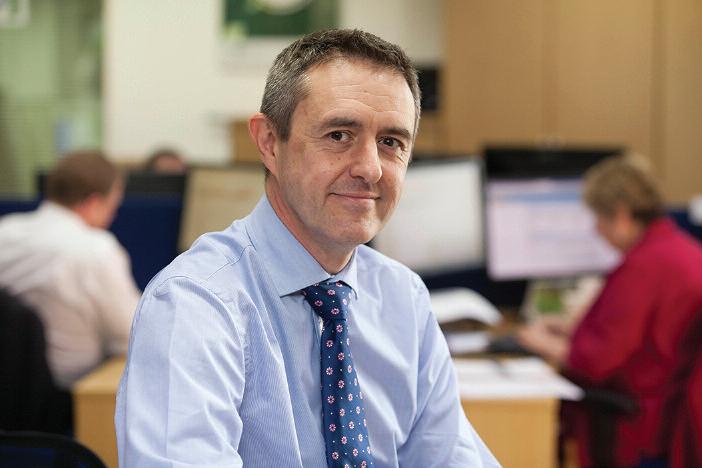
As the fight for Number 10 hots up the parties policies for adult social care are under scrutiny from those within the sector Tony Stein, chief executive of Healthcare Management Solutions (www hcsolutions co uk) offers his perspective on what the new Government should focus on to address the pressing needs of the adult social care sector
The proposed reforms to social care, while necessary, seem to tackle only a fraction of the issues facing the nation One of the key ele-
ments of the plan is increasing pay for care workers While this is undoubtedly a positive move we must consider the financial implications Local Authorities are already struggling with the existing costs of social care even before addressing the significant unmet needs in the sector The question remains: who will fund this pay increase? Without a clear answer this well-intentioned reform risks becoming an unfunded mandate that further strains local budgets
Another proposal on the table is to make social care free at the point of need similar to the NHS This idea while appealing may not be as well-considered as it appears When the NHS was established, it was not anticipated how dramatically costs would escalate over time Today, the NHS consumes a staggering £180 billion annually, with its share of national expenditure rising from 5 1% in 1980 to 11 3% in 2022 If social care were to follow a similar model, the financial burden could become unsustainable
Furthermore there has been no national conversation about whether taxpayers should cover the cost of personal care for everyone including those who can afford to pay for their own care Our current benefits system acts as a safety net for those unable to pay for their care For a government to decide to take funds from all taxpayers and redistribute them for personal care is a bold move It assumes a level of public agreement that may not exist and could provoke significant opposition
Current policies seem reactive rather than proactive While responding to immediate issues is necessary there is a lack of forward-thinking strategies aimed at improving the health of people as they age The
greatest strain on both social care and NHS budgets comes from people living longer but with multiple chronic conditions Developing policies that promote healthier ageing could alleviate some of this pressure and reduce long-term costs
Moreover there is a finite pool of labour willing to work in health and social care Simply raising wages in the social care sector will not necessarily attract more workers but could instead lead to inflationary pressures The sector already competes with other lower-paid industries like hospitality and retail An increase in wages in social care might compel these industries to raise their own wages leading to higher prices across the board This wage inflation could ultimately make the country less competitive on an international scale which would be detrimental to the economy as a whole
In conclusion most policies fall short of a comprehensive solution Increasing pay for care workers, making care free at the point of need, and responding to immediate problems are steps in the right direction, but they must be accompanied by sustainable funding mechanisms and proactive health policies A national conversation about the funding and structure of social care is essential Without it we risk implementing changes that may not have the desired effect and could even exacerbate existing problems The new Government must take a bal-
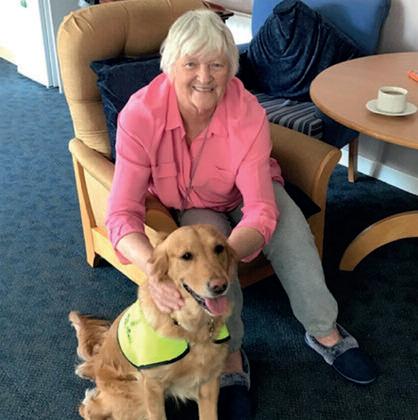



Is the lack of cohesion between the Mental Capacity Act 2005 and the Mental Health Act 1983 dangerous for patients?
This is an important question for patients and their families
because if patients are discharged from hospital without the proper community care plans in place it can increase the risk of them deteriorating in the community
This can prevent the stability that would have enabled the patient to rebuild their lives after being hospitalised It can also put the patient and others in dangerous situations whilst the patient is deteriorating
Further it can be excruciating for families supporting a patient through one hospital admission but to force them to re-live this experience and simultaneously battle a flawed mental health system can often create mental health issues with other family members too BACKGROUND
The Court of Protection is a specialised court that can make decisions on behalf of an adult who is deemed to lack mental capacity in one or more areas in their best interests For example it could decide where they should live or what package of care they should receive The statutory provision that underpins the Court of Protection is the Mental Capacity Act 2005 (MCA)
However, when a community discharge is due to happen for someone who has been detained under the Mental Health Act 1983 (MHA) there s often a lack of cohesion between the health care providers and community care providers particularly where a patient has experienced delusional or psychotic symptoms
There are existing provisions outlining the housing and care entitlements that a patient who has been detained under section 3 of the MHA may receive There are also statutory provisions under the Care Act 2014 setting out the duties of public authorities to meet the care needs of those with assessed care needs
For example a patient may need support to maintain their personal hygiene to manage medical appointments, to take their medications to maintain a habitable environment and so forth
This Act also covers the needs of a patient s carers and aims to prevent carers developing additional needs through a lack of proper community support However even though these provisions have been in effect for many years they are often not being properly utilised by health or community care providers LIMITED UNDERSTANDING OF THE MENTAL CAPACITY ACT
In addition it s notable that the average consultant psychiatrist outside of independent experts often have a very limited understanding of the MCA and appear to be unaware of how it could be transformative for their patient s care
As a result a patient s treating psychiatrist can be unable to properly assess a patient s capacity (decision making ability) in a given area particularly where the patient has a nuanced presentation For example fluctuating capacity borderline capacity or multiple diagnoses
Therefore, the extent of the patient’s vulnerabilities is not properly understood or addressed For example, a patient may be unable to make decisions surrounding their finances care medications sharing their medical information with their family or managing tenancy agreements in the community, leading to them making very poor decisions in these areas
Yet due to the lack of in-depth training on the MCA patients may be treated by clinicians as though they are simply making unwise but capacitous decisions and sadly frequently receive little to no community care as soon as they are discharged from hospital
The patient s families can tirelessly try to convey their vulnerability to services and develop mental health issues themselves because they are not medically trained or properly supported Many patients don t have family members to look after them and so are in extremely precarious situations
In many cases this inability to utilise existing law leads to a conveyor belt admission where patients are discharged abruptly and without adequate community care support or family notification they become dangerously unwell again in the community and need to be re-admitted back to hospital In many other cases a lack of proper mental health support can lead to patients becoming street homeless
Traditionally where a client within the Court of Protection needs to be detained under the MHA the jurisdiction of the Court of Protection ends Therefore legal representatives would usually have to conclude or stay the court proceedings and/or re-issue the case when a person is due to be discharged into the community
Seeing the lack of proper care and support for mental health patients has led me to try to utilise the Court of Protection to have some oversight of a patient s discharge to the community This period of a patient being discharged to the community is crucial for a patient and can be the difference between them needing to be re-admitted or not
In view of this even where a patient is detained under the MHA bringing a case to the Court of Protection may be considered Similarly, it may not be appropriate to conclude a case within the Court of Protection where a client has been admitted to hospital under the MHA because they may lose this court oversight at a critical time for the patient
WORKING WITH SERVICE PROVIDERS TO PROVIDE LONG-TERM COMMUNITY CARE
This oversight has yielded positive results for those clients detained under the MHA Instead of threatening litigation such as a public law challenge or a claim for compensation under the Human Rights Act 1998 we're able to largely work collaboratively with public authorities with the aim of stabilising the client in the community on a long-term basis
It can also be helpful to obtain capacity assessments from independent consultant psychiatrists who have extensive training on the MCA, highlighting that the patient has an inability to make certain decisions from themselves
This won't remove but will reduce the risk of hospital readmission or fatalities This will also reduce the pressures on health services and public expense Most importantly it will give mental health patients the best chance of being stable in the community so that they and their families can further recovery and / or have the best quality of life possible
Therefore whilst it has historically been an unattractive legal approach to utilise the Court of Protection in this way for these patients it can be life changing
Find out more about Irwin Mitchell s expertise in supporting patients and families affected by mental health and community care issues at its dedicated protecting your rights section


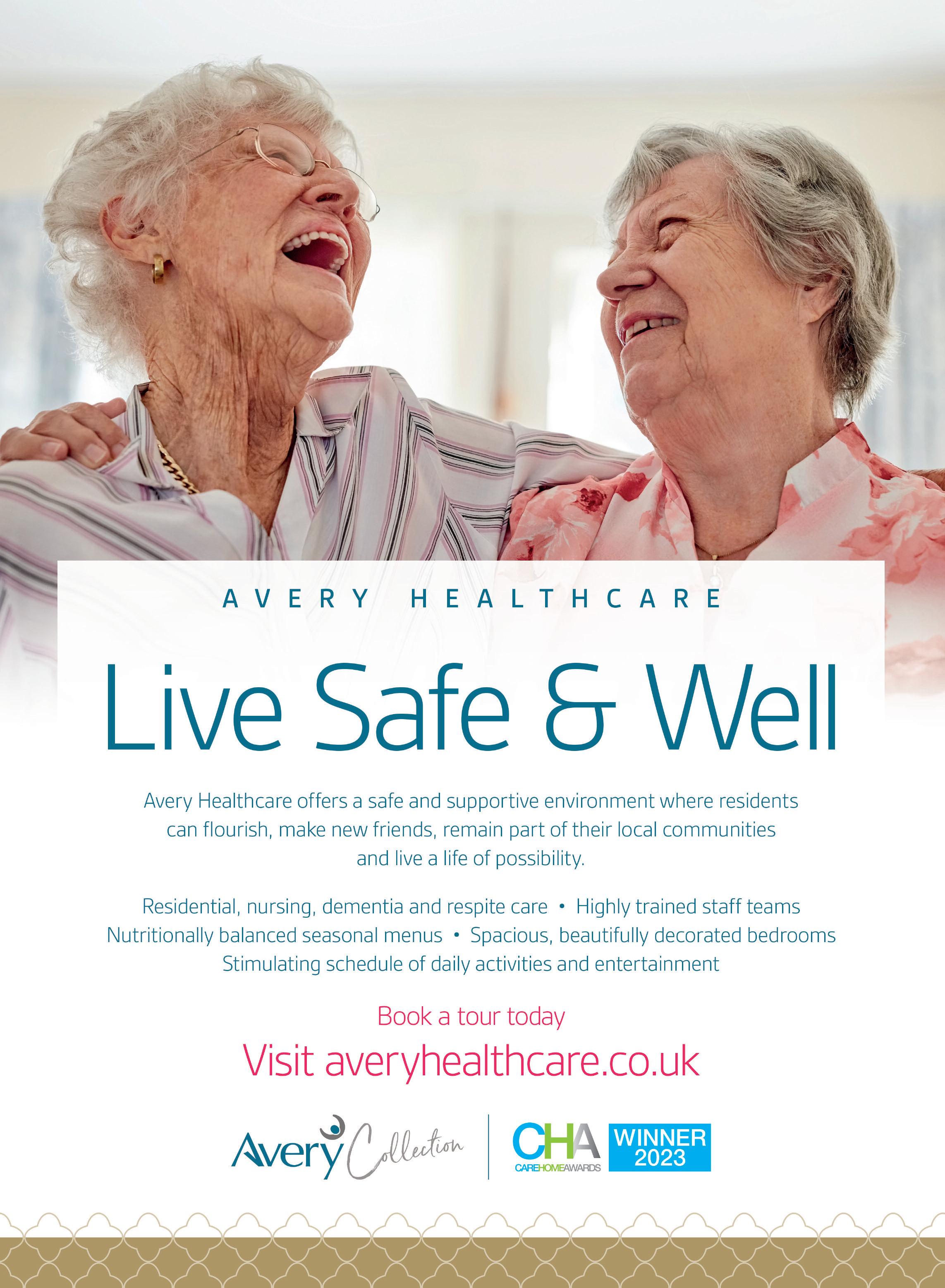
The next government could boost the economy by as much as £9 billion a year by giving older workers an equal opportunity in the labour market new analysis by theCentre for Ageing Betterreveals
By closing the employment rate gap between older and younger workers the Treasury would also net an additional £1 6 billion a year in income tax and national insurance contributions the charity s calculations detail
The Centre for Ageing Better is calling for all political parties to commit to raising the employment rate of 50-64 workers to 75% by 2030 by signing up to its new 50+ Employment Commitment This would equate to around half a million more 50-64-year-olds in work
The commitment has been endorsed by other leading organisations including Demos Age UK the Institute for Employment Studies Phoenix Insights and the Learning and Work Institute

Supporters of the commitment say older workers are currently being let down by ageism and age bias in the labour market a lack of flexible working and health support limited opportunities for skills development and underperforming employment support which is preventing many from realising their full potential
Dr Emily Andrews Deputy Director for Work at the Centre for Ageing Better said:
“The pandemic stalled two decades of improvement in the employment rate of older age groups and they have not recovered If employment opportunities stagnate after 50, so too will the UK economy
“A 75% employment rate target is attainable based on pre-pandemic trends but will require a sustained government focus on the issue By 2030 there will be an additional 1 2 million people aged 50-64 in the UK but only another 500 000 people aged 15-29 The future of UK growth and productivity over the next Parliament depends on mobilising the 50+ workforce
“This is not about special treatment for older workers This is about fairness and ensuring equal opportunity for older workers seeking employment or wanting to stay in work that will benefit employers, the economy and the whole country
By the end of the next Parliament the State Pension Age is set to rise to 67 It is imperative that we act now to reignite the pre-pandemic momentum and ensure that no segment of our workforce is left behind THE 50+ EMPLOYMENT COMMITMENT CALLS UPON POLITICAL PARTIES TO COMMIT TO:
- Raising the performance of employment support for people aged 50-66 to the level of people in their 40s
- Increasing investment in employment support for people in their 50s and60s,making targeted support available nationwide to all people out of work over 50
- Creating new opportunities for people to upskill reskill and develop in their 50s and 60s – including through expanding mid-life review pilots
- Conducting a review of DWP’s employment and benefits approach to all people in their 60s before the State Pension Age increases to 67 from 2026
- Consulting on the introduction of paid carer’s leave and strengthen recent legislation on unpaid carer’s leave and a default right to flexible work from day one by the end of next Parliament
- Delivering a government-backed awareness and information campaign directed at employers of all sizes to champion the value of good work for people in their 50s and 60s
Tony Wilson, Director at the Institute for Employment Studies, said: Three quarters of all employment growth this century has been among people aged over 50 but in the last four years this has ground to a halt For the first time in three decades employment among older people has stopped growing
“Addressing this needs to be a top priority for whoever wins this general election as helping more older people into work and to stay in work is going to be key to supporting a stronger economy better public finances and fewer people in poverty
A 75% target looks ambitious from where we are now but it is really the least that we should aim for We’re currently around 20th in Europe for employment among older people, and around a dozen countries are already at 75% higher We should be there too ”
THE
INCLUDE:
- The current employment gap between those aged 25-49 and those aged 50-64 is 14 percentage points (85% vs 71%)
- People in their 50s and 60s are nearly twice as likely as younger adults to become long-term unemployed once out of work
- Just one in ten people aged 50-64 who are out of work engage in back-to-work support and when they do their outcomes are significantly worse than the all-age average
- Almost one in three workers aged 50-70 who left their position during the pandemic report experiencing age discrimination when looking for work
- Over half a million peopleaged50-65 in this country who would like to be in work but are not Caroline Abrahams Charity Director at Age UK said “Never before has Britain needed its older workers as it does now With all the years or experience knowledge and wisdom that the 50+ age group can bring it s of huge importance that everyone who wants to work is able to do so
However for many people it s not always that easy Older workers face many barriers particularly if they are carers, have a health condition, or have recently found themselves unemployed and looking to retrain
And this is not to mention the ageism that pervades the labour market and prevents many in this age group from fulfilling their potential
It s crucial that the next government looks urgently at how to facilitate more – and better – working in later life in terms of both enabling people to stay with their existing employer and to find alternative work if the need arises
“Without a focused effort that looks explicitly at the barriers faced by older workers, we risk failing to take full advantage of this enormous talent pool, which would be a real tragedy at an individual and a national level
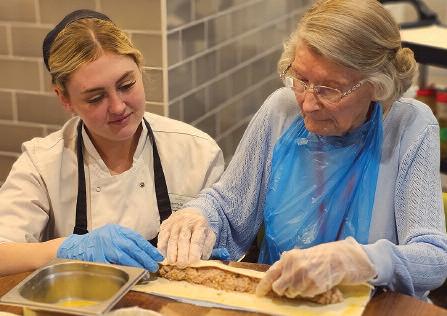

The Green Party has called on the next government to invest an extra £50bn a year to support the NHS and social care financed by taxes on the top 1% of earners
The party which is targeting winning four MPs for the first time said a massive cash injection was needed to boost NHS salaries and improve social care
Green Party Co-Leader Adrian Ramsay and the party s Health and Social Care Spokesperson, Dr Pallavi Devulapalli, announced a “gamechanging package for the NHS and social care totally £50 billion a year in investment by 2030 and an additional £20 billion in capital investment to improve crumbling buildings
Commenting at the launch Green Co-Leader Adrian Ramsay said “Today’s announcement represents a game changing package that is more than any other political party is offering It has been fully costed and could be fully delivered ”
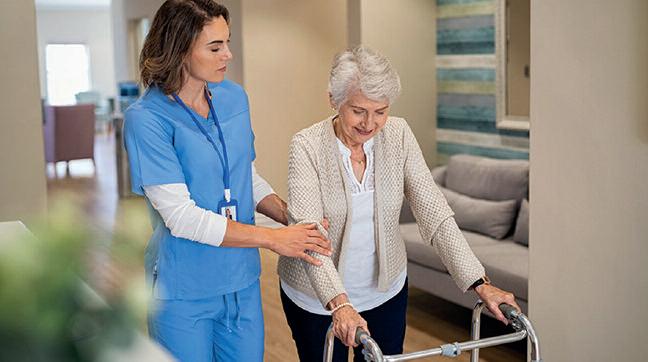
Mr Ramsay who described his personal experience in recent months supporting a family member both through hospitals and then into the care system said that “many people” could see that the NHS was stretched to breaking point despite the commitment of hard-working NHS staff Green Party Health and Social Care Spokesperson and practicing GP, Dr Pallavi Devulapalli , reiterated this saying that she had seen first-hand the impact that chronic underinvestment had on patients describing long-waiting times for treatments and the impact of living in severe pain unable to work or support loved ones
Mr Ramsay spoke to the need to “restore dignity both for NHS staff and patients
The Greens used the announcement to reveal a package of spending pledges alongside a Green cast iron guarantee that Green MPs would fight the privatisation of the NHS at every


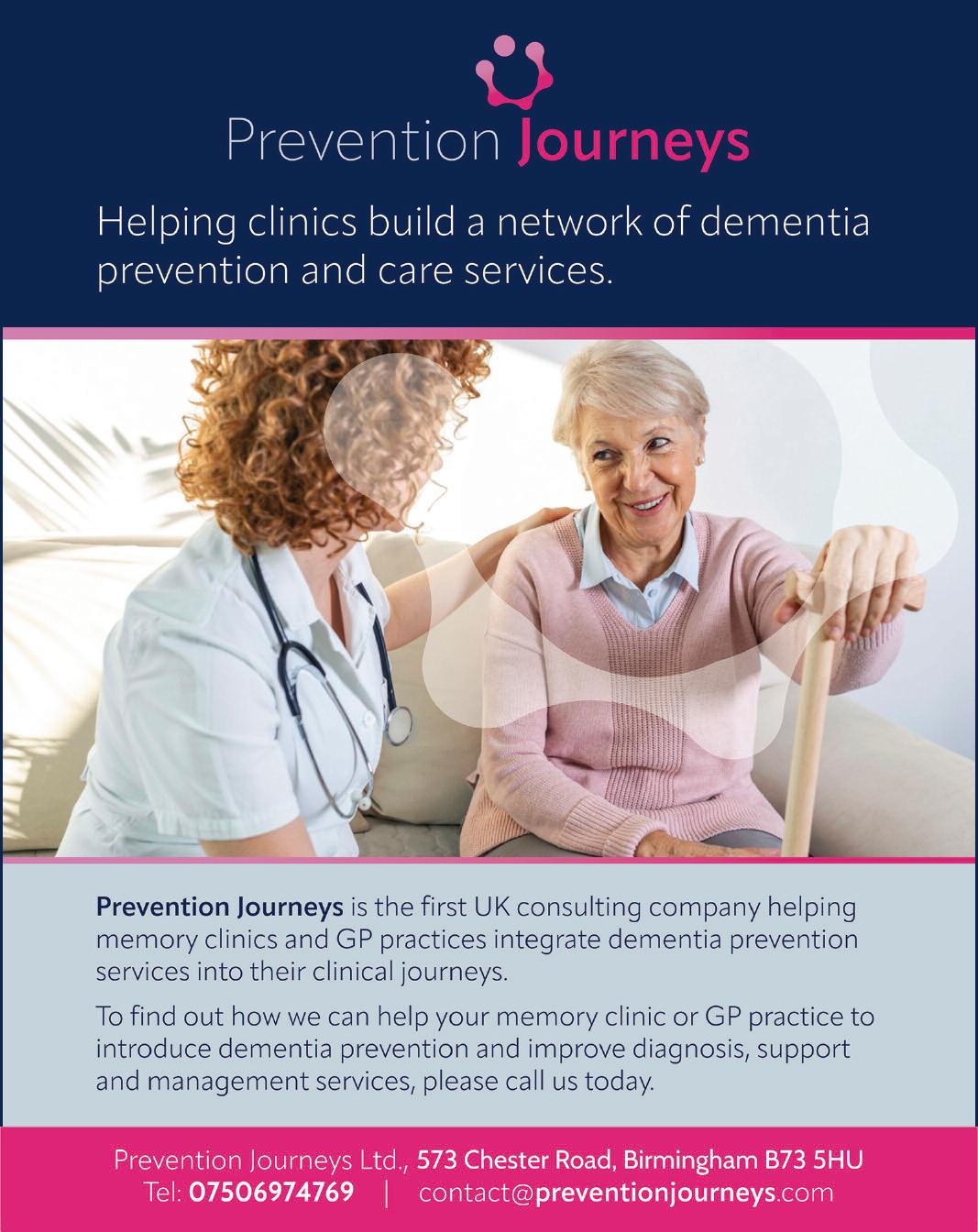
Research from retirement specialist Just Group has revealed that 62% of over 75 s are waiting for clear Government social care policies Over three in five over 75’s say they are delaying making any financial decisions for possible residential care needs until new social care policies have been announced after the general election
After years of false starts and dead ends former Prime Minister Boris Johnson unveiled what many hoped would be flagship reforms to social care in 2021
Aimed at those with modest levels of wealth and those facing catastrophic costs,’ it was designed to help people should they require extended periods of costly professional support
Then in the November 2022 Autumn Statement came the news that the changes would be delayed until at least October 2025 pushing reforms back until after the next General Election

So far political parties have avoided referencing social care in their election campaigns however earlier this week Liberal Democrat leader Sir Ed Davey pledged free personal care for older people if they were to win the upcoming election For the past decade the Just Group Care Report has gathered information on the knowledge and thoughts of the over 45s about adult social care
The longest running research series of its kind demonstrates how the repeated can-kicking on policy by successive governments is negatively influencing people’s engagement with the later life social care system and deterring them from making much-needed plans should they need this support
The latest data shows how nearly half (47%) of over 45s are delaying financial plans for potential residential care needs until new plans for funding are introduced This rises to 62% among those aged over 75, the
age group more likely to need later-life care sooner
Continued debate dither and delay has also created confusion and uncertainty in the public’s mind The majority (53%) of over 45s stated that they were confused by the Government announcements on the funding of residential care again increasing amongst older voters to 61% among over 75s
The impact of this is best summed up by the finding that over threequarters (76%) of over 45s have not thought about care, planned for it or spoken to their family about it while 94% have made no provision to cover the potential cost of care Commenting on the data, Stephen Lowe, group communications director at retirement specialist Just Group said: “For decades we have been beating the drum to encourage long-term crossparty policy development to support the creaking social care system
“But successive governments have been content to consign the problem of social care to the too difficult box
“With 3 5 million people over 65 now living alone, an increase of around 420,000 in the last decade, government should see the wave of demand for social care that s coming our way Aside from population pressures, the beleaguered NHS is also suffering from the lack of adequate social care which makes it difficult to discharge patients adding to existing pressures on the service
“The Liberal Democrats have made clear their policy for fixing social care which is inextricably linked to the supporting the NHS We wait to hear what if anything Labour or the Conservatives have to offer Unhappily nobody will be surprised if despite all the noise around the General Election there is a deafening silence on meaningful social care plans ”
She
To
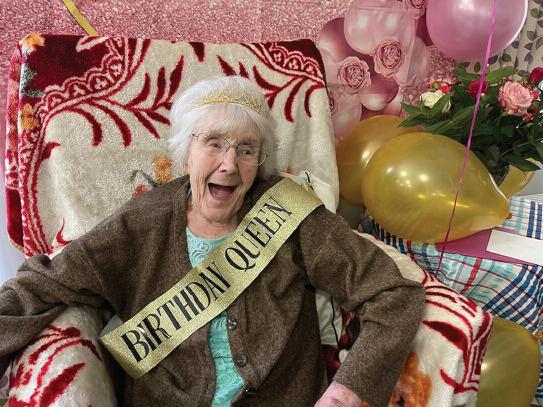


Politicians
These top-down measures can make it harder for GPs to prioritise urgent cases and for patients to book in an appointment at a convenient time or to see their own doctor warns a leading health think tank
Policies to speed up access to scarce appointments have been successively pursued against the backdrop of falling numbers of full-time equivalent GPs (a fall of 1 963 between Dec 2023 and Mar 2016) ¬ Current policies have neglected the benefits of patients seeing the same doctor and the number doing so is falling Of 42% of people who have a preferred doctor only 35% said they usually saw them this has fallen from 50% in 2018 Continuity of care is a good ambition which improves people s health and reduces A&E visits However, a recovery must start with those who need it most in the context of the difficult staffing situation

The Nuffield Trust argues that at a time of scarce resources, the manifesto commitments of political parties should support GPs to provide the right care to their patients based on need rather than an oversimplified focus on speed of appointment which pushes too many people through a daily 8am logjam at the expense of continuity of care and the benefits of other types of appointments which some patients will prefer
What health and care need from the next government: General practice and dentistry, published by the Nuffield Trust and funded by the Nuffield Foundation sets out a series of policy tests for addressing the challenges in general practice and dentistry as political parties publish their manifestos for government
The Nuffield Trust urges the next government to
- Improve access to the same GP for those with greatest need and would benefit most – with complex or ongoing clinical problems – approximately 20% of registered patients The next government should consider a benchmarking system to help patients choose practices based on access to the same GP
- Not to seek a blanket target for GPs to offer all appointments within a certain number of days or hours
which distorts staff resources and limits patients Clinicians should be able to make their own judgement on speed of appointments judged by patient need
- Not to have a blanket requirement for all patients to have been offered a face-to-face appointment for any interaction as this isn’t needed for some appointments including follow up discussions and routine checks or where a patient is able and feels comfortable using the phone or online forms
- Requiring practices to offer bookable appointments in advance for vaccinations and ideally with a GP who knows them for ongoing health conditions or mediation reviews The GP patient survey shows that one -in-four patients (23%) want the choice to book ahead for a non-urgent appointment and one quarter (25%) of these report being unable to do so
- Rather than meeting ratios or targets for appointments offered in a time slot or face-to-face it would be more beneficial for patients if practices were held to account on overall patient satisfaction with making appointments and the type of appointment they were offered through the annual GP survey
Nuffield Trust Senior Fellow Dr Rebecca Rosen, said “Easy access to GP appointments is the public’s top priority for the health service so this should be front and centre of the manifesto commitments on improving the NHS
“But for too long the approach to general practice has been too simplistic Policy makers have pushed to get people into appointments as quickly as possible but many want to be able to book convenient appointments for jabs or a check-up with their own doctor in advance, being forced to call at 8AM for a slot the next day is just not helpful for many people including some with the greatest needs Even a more cautious 7-day target, as announced by the Liberal Democrats, is just not relevant for some patients ” Manifestos need to demonstrate commitment to building and retaining GP numbers and investing in technology to identify which patients most need help to reduce the underlying pressure on the service
“The next government must resist pledges which do not allow for the flexibility that both patients and clinicians need We won t dramatically increase GP numbers overnight so it is imperative that clinicians and primary care staff can innovate and work around the needs of the patients and populations they know best ”
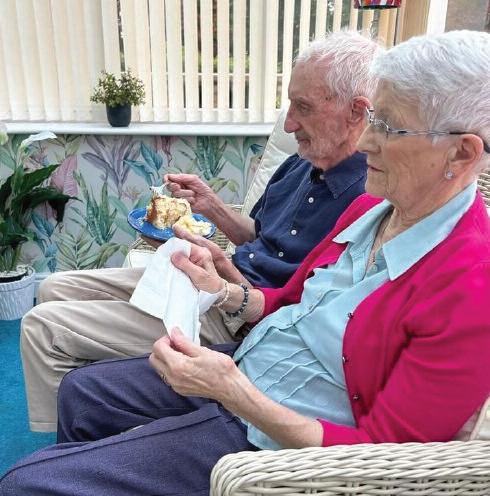




Social care organisations have a lot on their plate without a supply chain review getting in the way We collaborate with social care organisations and care homes across the country, taking care of the time-consuming details, and achieving the good value they deserve
With a robust, ethical, highly traceable supply chain, we deliver expert food, beverage, and non-food purchasing solutions that save time and money That means more time to focus on what matters, like supporting patient wellbeing with exceptional quality produce
Let's achieve new efficiencies today Sustainable sourcing for social care organisations and care homes.
We know how important sourcing is to social care organisations and care homes You need to know where your food, beverages and non-food are coming from, but that often means paying more than you should
At AVE, we don t believe that there should ever be a choice between ethics and value We offer sustainable sourcing that is good for the planet and your bottom line Social care purchasing.
Social care organisations choose us as their partner because we know the particular requirement of this challenging field We deliver a lean robust supply chain that works for your patients and people In a busy market we cut through the obscurity and complicated language to find the deals that matter to you achieving the quality you deserve at prices you didn't know were possible
How's that for a healthy supply chain? Your social care purchasing partner.
Achieve lean, robust food and non-food supply for your social care business or care home Our purchasing experts have spent years working in the social care sector, identifying the particular needs of people in this challenging field and delivering on time every time Sustainable produce, better prices and the quality you deserve Social care food management consultancy. inspire healthcare chefs and catering staff with quality menus and recipes that your patients will love Our food management consultants have worked with health and social care organisations and care homes across the UK, crafting bespoke menus that deliver on price and taste We'll even help you navigate the tricky territory of special diets and allergens with ease Social care in-house catering solutions.
Catering can be tricky to go at alone Why not partner up? Trust us to lend a specialist hand across every aspect of your food operation, and guarantee the best results - safety and sustainability assured
Well-known actor and Only Fools and Horses Star, Paul Barber, recently opened a new Sensory Room at St Fillans Care Home alongside the Mayor of Colchester Lesley Scott-Boutell
The sensory room was created to provide a dedicated space where the people living in the care home could rest and relax The room would also provide the lifestyle team with an alternative setting to host activities that benefit from multisensory stimulation and aid in dementia care, as multisensory spaces can support reminiscence therapy
Construction of the sensory room began after a generous donation was received from an anonymous benefactor who wanted to support the home to create this new space for the people who live there It was a lovely gesture that has opened new doors for the people who live at St Fillans and the team is forever grateful
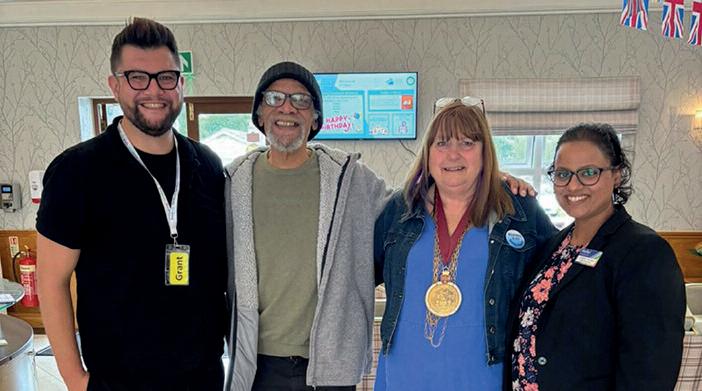
The team decided to merge the sensory room with the theme of nature, as people love spending time outside, admiring the sights and sounds of wildlife so this space could also serve as a place people could go to get a sense of the outdoors during the colder, wetter months or as an accessible alternative for people with limited mobility Lifestyle Coordinator Grant who oversaw the project from start to finish wanted to ensure the opening of the ‘Fillans’ Forest’ was memorable so he began to think about who he would like to cut the ribbon and officially open the space
He chose to reach out to Only Fools and Horses star Paul Barber as the legendary show is familiar to the people who live and work at St Fillans and is still a show they enjoy watching to this day When Paul s team responded to




We are excited to announce this new round of investment and how it will impact large Social Care organisations and their employees

Together with my fellow co-founders, Oli Johnson and Ben Dixon, we’d like to thank Felicis who led the financing with participation from Northzone, Google s AI-fund Gradient, SpeedInvest, Antler, BAG Ventures, and the numerous notable angels who participated in the round
When we founded Sona in 2021, we wanted to solve the unique challenges of frontline work with technology that empowers every employee, on every level of a large organisation
Two years later, Sona is doing just that for over 100,000 people We are grateful to the many organisations who have chosen us to support them on their digital journey, including Community Integrated Care, iVolve, Affinity, Yorkshire Care, Greensleeves Care, Cartrefi Cymru, and Livability, helping them deliver almost 5 million seamless shifts We’d also like to thank our partners who share in our vision for an integrated tech landscape for Care, including Nourish, Radar Healthcare, and Lottie

Some of the most talented and motivated people around have joined us to make this possible, and I d like to give a particular shout-out to Hayley Horwood and Richard Upshall Together, they have more than 25 years of experience in the Care sector and their insights have guided us every step of the way
This deep involvement has taught us that the complexity associated with multi-location, 1000+ staff operations is coupled with the pressure and responsibility to provide the best care possible Social Care demands a state-ofthe-art solution, built with the kind of technology that isn’t just the latest right now, but that is flexible enough to continue being state-of-the-art ten years from now and later into the future
The financing is a big step on our journey to becoming the go-to WFM for large Social Care groups, but - more importantly - it is an investment in the sector as a whole Over the past year, we’ve seen demand for a nextgeneration solution like Sona increase fourfold Our
partners are looking to make their operations more efficient and reliable, improve staff satisfaction, and become financially sustainable organisations that can easily grow and support more people
The fact that we can confidently say Sona is a solution that pays for itself - and then more! - is something we’re incredibly proud of because it provides organisations with a new revenue source they can re-invest into employee wellbeing and a better experience for the people they care for
So, what does this mean for the Care sector?
1 A truly intelligent AI-driven solution
We want to empower Social Care enterprises to forecast their staff needs based on what is best for the people they support with maximum accuracy and automatically tailor their operations accordingly This will help organisations speed up their scheduling, gain real-time views of their shift runs, and encourage growth in a way that tech simply hasn’t in the last decade Previously, the focus was mostly on digitising paper-based processes, but as many organisations are now starting a vendor-replacement cycle, we want to provide them with a real nextgeneration solution
2. Automated HR processes
Our HR solution is already closely linked to Scheduling and communicates seamlessly as solutions built to work together from day one should The next step is to bring automation to the HR processes that currently take up the most time and are heavily prone to errors Our goal is to make the data we feed into our Payroll engine as accurate as possible and remove the potential for mistakes to snowball, leading to drops in employee satisfaction, more admin time, and even legal risks down the line
3 User-first technology
One implementation challenge organisations have experienced with legacy software is low tech adoption rates from frontline staff But what oftentimes is seen as fear of change, is actually a natural reaction to employee apps which were not designed to be accessible The Sona mobile app - together with all our interfaces - is built with usability in mind and consumer-grade standards We want to enrich this experience with even more features that make user life more efficient and increase satisfaction, particularly around self-service and onboarding new staff We believe the first impression new employees get of their organisation and its processes is key to their retention
4 High-quality research and contributions to Social Care in the UK
The feedback we’ve received for our industry-leading reports, webinars, and other research activities has always been incredible and we’re only looking to add more Social Care is first and foremost about the people and the community We plan to continue reporting on the pulse of the sector, bring together leaders and visionaries to share their insights, and always spotlight the many opportunities Care offers At the same time, we want to expand our existing charitable contributions and make sure that we’re always giving back to those on the frontline
committed our Customer Success and Implementation teams are to always going the extra mile, helping them optimise and grow their business We want to make sure that as we grow ourselves, we only improve this experience and provide even more comprehensive support every step of the way For that we’ll be on the lookout for the best talent available

Overall, with Sona, I like to think of it as building the “selfdriving car of running a Care business The last 20 years of workforce management were dominated by legacy point solutions that digitised simple paper processes Sona is building the next generation of WFM with a truly intelligent platform that enables organisational leaders in complex, multi-location enterprises to put the right people, in the right place, at the right time; and to seamlessly manage their workforce end-to-end
We believe we can deliver this because our exponential growth has been driven by tangible factors: speed of product delivery, high configurability, and sector expertise
Unlike legacy platforms, Sona’s technology has been built from the ground up for real-time data processing and insights Leveraging the Elixir programming language and large language models - similar to what powers tools like ChatGPT - we offer AI-powered real-time actionable feedback which helps drive intelligent decision making and leads to real workforce productivity gains The trust of our investors so far has yielded a total of £30 millionfunds that we see contributing to the development of the sector as a whole
We are proud to lead Sona's Series A round and support its mission to empower frontline enterprises with cuttingedge workforce management solutions We believe in Sona's potential to redefine how businesses [ ] manage their workforce, and we re excited to be part of their journey towards reshaping the future of work Ben, Oli, Steffen and the Sona team have already helped over 100,000 frontline workers schedule shifts, and we know so many more will appreciate smarter software that enables their work ”
Niki Pezeshki, General Partner at Felicis

As we continue to innovate, our mission remains clear: to transform the outdated tools that have hindered Care enterprises in the past and usher in a new era of intelligent WFM that drives efficiency, employee wellbeing, and, ultimately, the delivery of exceptional care
Steffen Wulff Petersen Sona CEO and Co-Founder
5 A trustworthy partnership for all our UK customers
Our partners have consistently highlighted how
Without looking after and retaining doctors, the next Government has no hope of improving peoples health or of high-quality treatment being readily available pushing the NHS and the health of the nation into an ever deeper crisis the BMA has said
The BMA is calling for the incoming Government to make health its number one priority IN THE ASSOCIATION’S OWN MANIFESTO, ‘PATIENTS NEED DOCTORS’, THE BMA LAYS OUT FIVE KEY AREAS WHICH EACH PARTY MUST COMMIT TO:
- Value the vital role doctors play across all health services and restore their pay
- Protect doctors from any further erosion of their professional role and employment rights

- Train and provide jobs for the next generation of doctors needed to meet demand
- Fund the services needed for the future of the health service
- Safeguard the public’s health and wellbeing, prioritising preventative care
Without addressing all of these areas the BMA says the UK will continue to lose doctors peoples health declines further, the economy suffers more, and people will find it even harder to get the care they need on time and from the right expert health professional
Among the calls in its manifesto the BMA says real-terms pay cuts must be reversed and absurd barriers preventing doctors from taking on more work must be removed including those caused by complex unfair pension rules and restrictions in the GP contract that prevent practices in England from using existing funding to hire more GPs
Meanwhile the BMA calls for urgent action to halt the recruitment and expansion of medical associate roles such as physician associates, that are being used to substitute doctors and devalue medical expertise
– confusing patients and putting safety at risk in the process
A refusal by the country s leaders to tackle these issues will make it even more difficult for patients to see a doctor when they need one the
BMA says BMA chair of council Professor Philip Banfield said: We have an understaffed, under-resourced and under-performing health service, an exhausted and underpaid workforce and an increasingly unwell population The next Government risks the collapse of free-at-the-point-of-need healthcare if it fails to address these issues and reverse the damage caused by years of austerity politics
“All parties must make the health of the country and health services their top priority so that doctors and healthcare staff can do their jobs safely and properly Tackling waiting list backlogs, increasing productivity of the NHS and improving patient safety all depend on positive engagement with the medical profession
“Having enough doctors, with their unique skills and expertise, is at the core of this In recent years we have seen erosion of the profession with real-terms pay cut after real-terms pay cut our professional expertise disregarded and when we exercise our moral and professional duty to raise safety concerns these are too often run roughshod over by managers or executives who would rather protect the reputation of institutions than protect patients
“If the next Government continues down this path refusing to value and protect the medical profession doctors will continue to leave and the situation for patients – waiting for years for operations weeks to see a GP, or days to be treated in A&E – will get far, far worse
Patients need doctors Thankfully we are here to help the next Government guarantee that enough of us will be left to ensure the health of the NHS and the health of the country ”
and
would be a
bers of the
dens said Jo
idea to
community into the grounds
the General Manager at Friends of the Elderly Malvern Visitors will not
also discover

hidden garden secrets - the sunken water garden and grotto,” continued Jo According to the history books both the sunken water garden and grotto date back to the first decade of the 20th Century when Charles Dyson Perrins lived at the property ”
Another attraction which is sure to be a favourite with visitors is the famous Davenham Well – which is also known as St John’s Well – with its ornamental bronze well head spout and basin and is located at the front of Davenham Residential Care Home
Everyone will also be able to see our English Heritage Blue Plaque on Davenham’s gate which is dedicated to Charles Dyson Perrins and celebrates the link between Friends of the Elderly and this historic local figure Jo added
“The residents are looking forward to our open garden week, and seeing visitors admire our beautiful grounds added Tina Ellenton the Activities Coordinator at Davenham Care Home
Every day throughout the duration of the Friends of the Elderly s open garden and grounds week there will be a free refreshment station for visitors to enjoy delicious homemade cakes quench their thirsts with refreshing drinks and also a range of information about the care homes and their facilities
Everyone at Friends of the Elderly Malvern – the residents and the care team – and clients from our Malvern Day Care Service - are really excited about our open gardens week We are looking forward to welcoming our local community new and existing friends through our gates and hope they have a wonderful time too,” concluded Jo
Now in its 11th year The Alzheimer s & Dementia Show is the UK s leading event for care providers, healthcare professionals, families and carers This is an unmissable event for those wanting to learn from leading experts, find practical advice and support, resources, help and information develop a better understanding of dementia and further professional skills
Taking place at London ExCel on 14 - 15 June the show features a fully accredited CPD conference programme with talks from leading experts family carers and people living with dementia alongside professional advice clinics dementia and care exhibitors and unique individual training opportunities you won t find at any other event
EXHIBITION HIGHLIGHTS
Exhibitors include organisations offering a range of products and services including care at home care homes living aids reminiscence therapy funding training telecare assistive technology charity research legal education and finance
EXCLUSIVELY TO
&

needs of people living with dementia It forces you to find new ways to communicate and recognise how to better understand living with dementia The CQC

The National Pharmacy Association (NPA) has warned of skyrocketing levels of pharmacy closures this year
New analysis by the NPA which represents independent community pharmacies across the UK, has found the number of pharmacies closing this year is nearly 50 per cent

£5,776 For

proudly as an advocate for their invaluable support ” Throughout the event Ameet who was part of the pink team demonstrated exceptional courage and

determination Highlights included winning the reptile challenge and braving a python encounter, excelling in the eating challenge with marinated pickled cabbage, and competing fiercely in the final round of archery assault courses and skill challenges Despite the Blue team winning the day Ameet was honoured as the top fundraiser shortly before being covered in coincidently Boutique Care Homes’ signature green gunge David Annand Fundraising Manager at Crossroads Care Surrey celebrated the event’s success: “Now that the smell of fermented herring has passed and the green gunge been washed away I’m delighted to share that our ‘I m a Director Get Me Out of Here! 2024 fundraising event raised an amazing £25 545 06 (including gift aid) on Friday This means that Crossroads Care Surrey can support 5 unpaid carers with life-changing weekly 3 5hour respite breaks from caring for an entire year The funds raised will significantly contribute to Crossroads Care Surrey’s mission of providing respite breaks companionship visits and end-of-life care for unpaid carers including young carers Ameet Kotecha expressed his gratitude, stating, “It was a privilege to participate in this challenge and to contribute to such a vital cause The dedication of unpaid carers is truly inspiring and I am proud to support Crossroads Care Surrey in their efforts to provide the assistance and recognition these carers so richly deserve

Networking
showcasing the latest products services, and solutions
From state-of-the-art assistive devices to innovative therapeutic interventions, attendees have the opportunity to explore a diverse range of offerings from leading industry providers The exhibition serves as a hub for discovering cutting-edge technologies exploring new approaches to patient care and staying abreast of industry developments
Furthermore the event caters to professionals at every stage of their career journey from seasoned practitioners to students and newcomers to the field For students and recent graduates the show offers valuable insights into the profession, career guidance, and networking opportunities to kickstart their careers For established professionals it presents a platform to stay updated on the latest advancements, expand their knowledge base, and connect with peers to drive continuous improvement and innovation in their practice
The Care & Occupational Therapy Show is a must-attend event for professionals seeking to stay ahead of the curve in the dynamic fields of care and occupational






assistance with eating and drinking skills as well as the provision of meals
With that in mind, it s essential that you re not only aware of the food and drink regulations in place but how you can build on these to improve your offering and services within a care home environment WHAT HAPPENS IF RESIDENTS DON’T RECEIVE THE RIGHT NUTRITION?
With age malnutrition can become more of a concern It s estimated that around 1 in 10 people over the age of 65 are either malnourished, or at risk Changes that the elderly go through can lead to things like a diminished appetite or even a loss of interest in food not to mention
health conditions or changing health needs that can also impact the amount of nutrition a person receives It s important to remember that residents may be a healthy weight but could still not be getting the right nutrients they need Other signs of malnutrition might include things like muscle weakness feeling tired increased falls or even poor wound healing
What s more older people will find it more difficult to absorb vitamin D through sunlight, and so this must be considered in their diet
Similarly older adults can also be a higher risk of becoming dehydrated as they may not recognise the feeling of thirst the way they used to FOOD AND DRINK REGULATIONS FOR CARE HOMES
The Health and Social Care Act of 2008 was brought in to ensure all care home settings registered with the Care Quality Commission and complied with its requirements It’s deemed to be one of the most significant reforms of social care in decades
In particular, Regulation 14 states that the nutritional and hydration needs of residents must be met WHAT CARE HOMES CAN DO
With that in mind it’s important that care homes have the right measures in place to keep residents as healthy as possible when it comes to nutrition and hydration Here are some tips on how carers and kitchen staff can work together to further improve the system in place
Regular assessments: Every resident will have different needs and so by
carrying out frequent assessments you can determine more accurately whether residents are getting what they need from their current meals and drinks This also gives you the chance to identify
Personalised plans:
to allergies medical conditions and also flavour and texture preferences
• Ongoing education: It’s hugely important to carry out regular
and
or malnourishment It also means they
to help residents improve their health and wellbeing
Emotional support and reassurance In some cases residents may hold back on eating or drinking because of worries with incontinence It’s absolutely pivotal that carers can give the right emotional support and are able to reassure residents on this topic


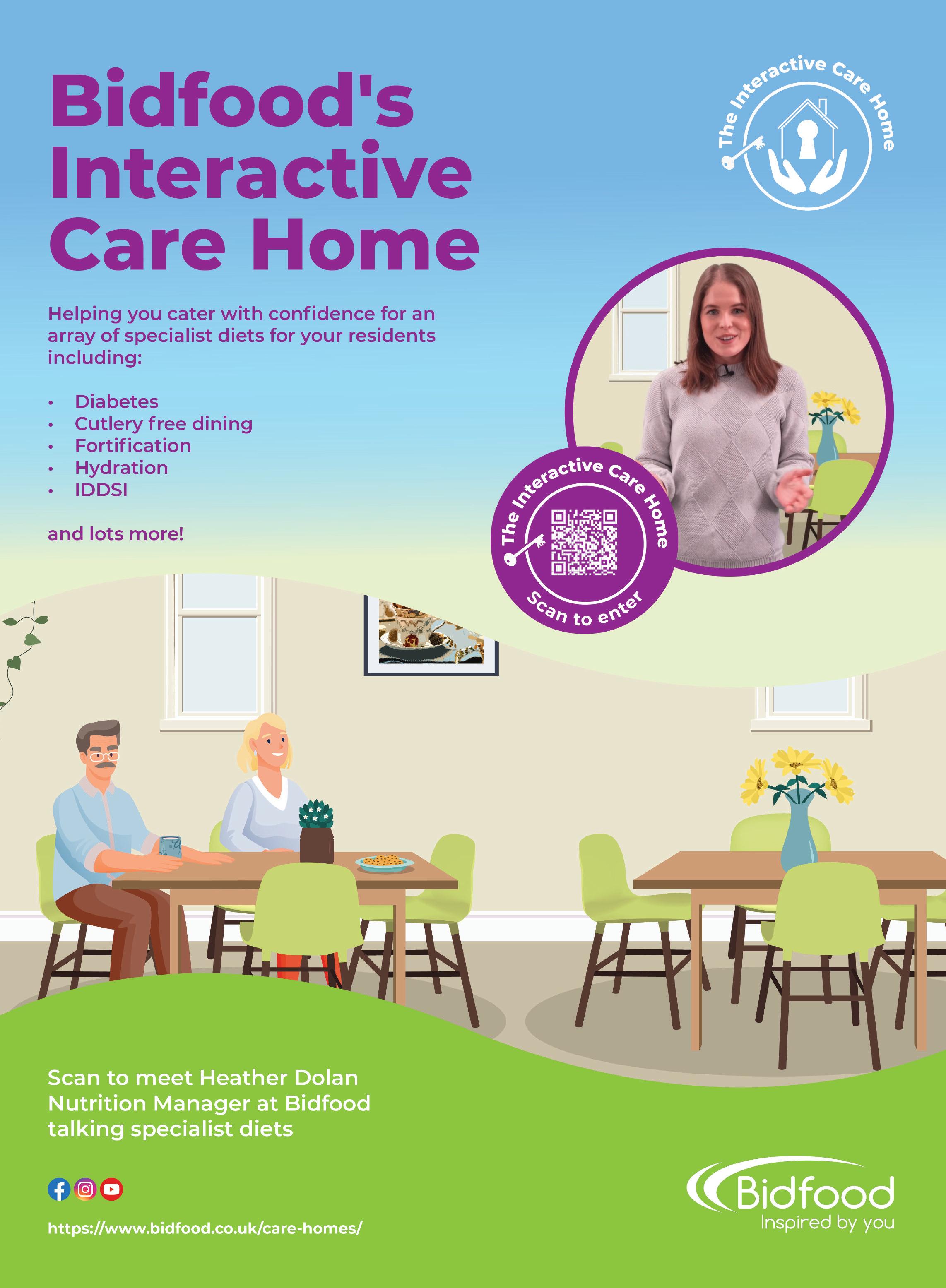
Laundry is one of the major cleaning and hygiene challenges for care homes
For care homes maintaining impeccable cleanliness is more than a routine task; it is a vital responsibility The elderly and those with compromised health are particularly susceptible to infections making rigorous hygiene standards essential Professional laundry systems are engineered to meet these stringent requirements ensuring that every piece of linen from bed sheets to residents' clothing is thoroughly cleaned and sanitized
Unlike domestic machines commercial laundry systems are designed to handle large volumes with consistent efficacy They maintain precise water temperatures and use specialized detergents capable of eradicating harmful pathogens This level of thoroughness is crucial in environments where the risk of infection is high MINIMISING INFECTIONS AND CROSS-CONTAMINATION

Infection control is a critical concern in care homes Pathogens such as MRSA E coli and norovirus pose significant threats to residents Professional laundry systems play a key role in mitigating these risks by incorporating advanced features designed to prevent cross-contamination Barrier washers for instance have separate compartments for dirty and clean laundry ensuring that contaminants are contained and do not spread to freshly laundered items
Programmable wash cycles in these systems can be tailored to different textile types and soil levels, optimizing the disinfection process Furthermore innovations like ozone technology enhance sanitization while allowing for lower temperature washes, preserving fabric quality and extending the life of linens THE ROLE OF TRAINING AND SAFETY
Effective laundry management in care homes extends beyond the machines themselves Proper training for staff is critical to ensure that laundry processes are carried out safely and effectively Understanding how to use detergents correctly is a key aspect of this training Professional laundry detergents are formu-
lated to be both powerful against germs and safe for sensitive skin but improper use can diminish their effectiveness or even pose safety hazards
Staff must be trained in the correct handling and dosing of these detergents to maximize their benefits while ensuring safety Additionally, training on the use of laundry equipment helps prevent operational errors and promotes adherence to hygiene protocols
SAFEGUARDING YOUR RESIDENTS
In conclusion the importance of best laundry practices in care homes cannot be overstated By implementing effective laundry procedures care facilities can safeguard the health and well-being of residents maintain a clean and hygienic environment, and ultimately enhance the quality of care provided Prioritising proper laundry practices is a fundamental aspect of upholding the highest standards of cleanliness and ensuring the comfort and safety of individuals in care homes
P&G Professional have a suite of well-known and respected products across the sector for powerful cleaning and lower operational costs
Ariel Professional Washing Powder Antibacterial is a professional detergent specially formulated to deliver excellent stain removal and deep down cleaning at low temperature Ariel Professional delivers unrivalled cleaning and antibacterial protection at low temperatures and with short washing cycles thereby reducing energy and time costs whilst still getting things clean There is also an added benefit in that many P&G Professional products have similar names and smells as their domestic ranges giving a feeling of comfort and familiarity to residents and their families
Hygiene and infection control is vital and at the top of the agenda for care homes but we can be comforted to know we are going into battle with some of the most reliable and scientifically proven products that P&G Professional have developed with their unparalleled experience of engaging with the care sector and with the most comprehensive scientific rigour






In life where memories intertwine with the present there's a profound need for companionship understanding and support – especially for those navigating the complexities of dementia We know that Dementia isn t just a medical condition; it s a complicated journey for over 90 000 people in Scotland today marked by profound emotional upheaval and huge uncertainty As such we believe that approaches to this delicate type of care must transcend clinical protocols and embrace the little things when it comes to human experience For example music!
When the rhythm of life slows to a gentle rhythm in the quiet corridors of care facilities, music can be a powerful force and breathe vibrancy and vitality into the lives of those who need it most What we have found is that for those navigating the complexities of dementia, the role of music
surpasses mere entertainment it becomes a lifeline A conduit for connection and a source of comfort
In my time in my role I personally have witnessed first-hand the great impact of music in nurturing mental physical and emotional wellbeing among the 3 500 people benefiting from our Dementia Day Care Services every year We have all been exposed to music in some way in our lives –whether by listening to recordings playing an instrument attending concerts or dancing From lively sing-alongs to serene music therapy sessions partaking in a symphony of experiences when living with dementia can awaken hidden memories, stir dormant emotions and reignite feelings of joy and camaraderie
In fact a study comparing standard care to regular singing or music listening sessions over 10 weeks in 89 people with dementia (type not specified) music sessions improved general cognition (MMSE score) attention and executive function compared to standard care Singing appeared to evoke personal remote memories by increasing recall of names of children friends and immediate short story recall
One of our flagship programmes the Music Wellbeing Programme stands as a testament to the power of communal music-making Led by talented musicians and dedicated staff members this dementia-inclusive activity serves as a sanctuary where residents and caregivers alike gather to share stories create melodies and forge lasting connections Through familiar tunes, we witness the emergence of radiant smiles, the tapping of feet, and the stirring of long-forgotten memories, as residents reclaim moments of joy and belonging Music really does serve as a universal language for us all overcoming factors such as age cognition and physical ability
Could your centre or service partner with local entertainers or other community organisations to incorporate music within your care community? From lively dance performances to intimate acoustic sessions these

collaborative endeavours create an environment with an infectious energy, lifting spirits and fostering a sense of collective celebration
The Eric Liddell Community stands as a centre of hope, redefining the landscape of dementia care with innovation compassion, and inclusivity Our namesake – a Scottish legend, sports person and missionary – strived to create a world where no one felt isolated or alone Where every individual's journey is met with dignity and respect
Based on the substantial evidence that music offers numerous health benefits we’d highly recommend that your establishment considers introducing music entertainment and community engagement Together we can all create moments of joy connection and meaning for those who need it most
Recreo VR’s innovative service has been proven to enhance the mental and social well-being of those living with dementia through person-centered virtual experiences Our headsets are a fun and exciting way to personalize care enhance activities and improve the quality of life of your residents
We partner with the Alzheimer’s Society and our service has been co-designed with those affected by dementia offering an intuitive VR interface for carers to select experiences and environments that are meaningful, engaging, and suitable for residents to enjoy In a recent evaluation of our product with over 100 people living with dementia 97% of residents engaged with our headsets 86% said they enjoyed it and wanted to access VR more in their care Our headsets also helped residents recall memories improved mood and wellbeing over


ries
✓ Simplicity Skip the complicated setups No Ethernet cables or equipment authorisation required Just sign in and start playing
✓ Ready-to-Go Entertainment: Access a plethora of quizzes without the last-minute rush to find or produce questions Just search select and play
✓ 24/7 Usage Play as many times as you want whenever you want wherever you want There are no restrictions!
and did I mention traditional (and Party) Bingo as well as Play Your Cards Right is included within the software subscription!
Be part of a growing community of quiz lovers in care homes, who've upgraded their game with HQ FM Pub Quiz Software
Sign up now to enhance your guests quiz experience and join the ranks of satisfied quizzers who ve found the perfect blend of convenience ease and competition
Ready to transform your quiz sessions? Click here (https://admin hq fm/account/register) to start your journey with HQ FM and bring the excitement of a quiz directly to you wherever you are
Find us TODAY and access your FREE 7-day trial at: https://hashtagquiz co uk/quiz-for-the-elderlyand-seniors/
Founded in 2001 Music for Health has been making significant strides in improving the well-being of residents in Care Homes and Nursing Homes across England and Wales These workshops are thoughtfully designed to engage participants in a variety of activities including dancing with instruments singalongs and interactive quizzes
The program s multifaceted approach is particularly beneficial for residents suffering from dementia and Alzheimer's Music known for its therapeutic properties provides a stimulating environment that promotes both physical and mental activity Dancing helps improve motor skills and coordination while the rhythmic aspects of music can trigger memory and emotional responses providing a sense of familiarity and comfort
Sing-alongs create a communal atmosphere encouraging social interaction and reducing feelings of isolation The quizzes not only entertain but also stimulate cognitive function challenging the brain and helping to maintain mental acuity
Overall, Music for Health’s workshops offer a holis-

tic approach to care ensuring that elderly residents remain active engaged and socially connected By bringing the joy of music into care homes this initiative continues to make a profound impact on the lives of many fostering a sense of community and wellbeing
To expand our reach and impact Music for Health is currently recruiting more Area Directors to join our team across the United Kingdom If you have a passion for music and a desire to make a difference in the lives of others, we encourage you to contuct us and help us bring the healing power of music to more communities
Contact Carl on 07712 669456, email musicforhealthrecruitment@gmail com or visit www musicforhealthteam co uk





PLEASE MENTION THE CARER WHEN RESPONDING TO ADVERTISING
Tired of the same old song and dance when it comes to planning engaging activities? Well fear not! Activities to Share is here to sprinkle some excitement into your daily routine
If you ve been feeling like you re stuck in a creative rut we ve got the antidote Picture this a wonderland of activity ideas free downloads that are basically the golden ticket to fun and a treasure trove of products that'll make your heart skip a beat (in a good way)

We get it – after a while even the most fantastic activities can start feeling a bit blah That's why we've scoured the corners of creativity to bring you fresh fabulous ideas that'll have you and your crew grinning from ear to ear
Our website, activitiestoshare co uk, is your go-to haven for all things fun and engaging Need a burst of

Digital therapeutics can be effective and efficient tools to enhance and support care plans in many different ways including intervention and management of physical well-being cognitive stimulation emotional and mental health and clinical monitoring
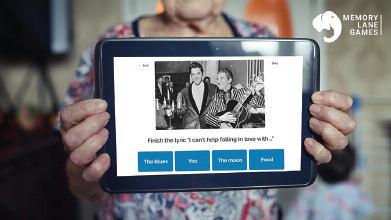
Memory Lane Games as an example uses therapeutic interventions driven by specialized software that helps those living with dementia and their care teams manage specific needs and improve clinical outcomes through dementia-specific games The app is an adaptive solution which is tailored over time to individual needs More specifically it makes for more effective care delivery in the following ways
Creating Engagement by employing personalised and localised games to not only trigger positive memories but also foster improved socialisation address social isolation and improve communication and understanding of a person s likes dislikes and needs
Supporting health equity with multinational multicultural multi language localised content
Through its ava lability and portab lity the app can be employed at a moment’s notice, when it is most
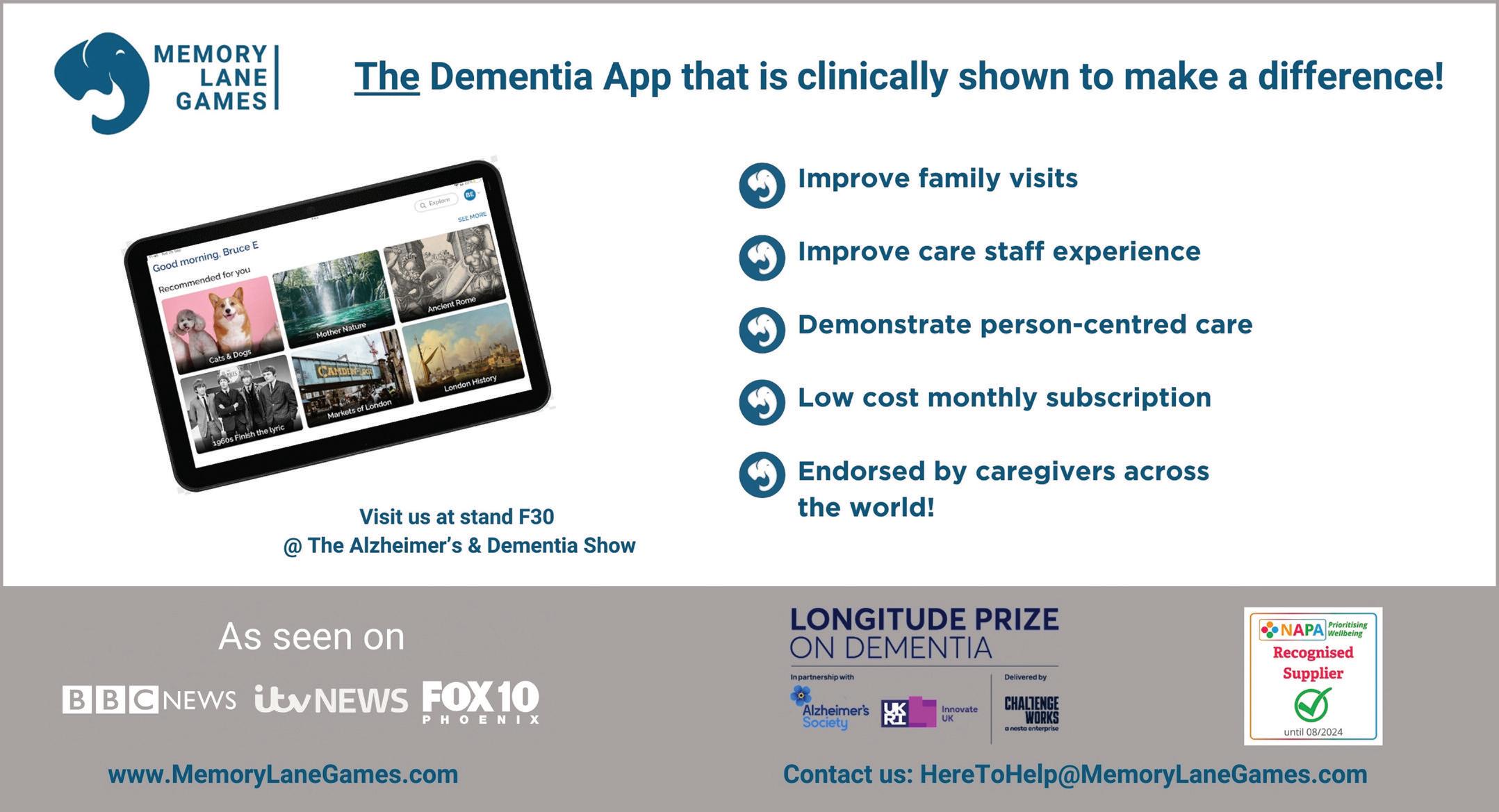

After her father s passing from Alzheimer s Sharon Daltrey and her husband Chris founded Timeless Presents a company devoted to encouraging engagement and communication for those living with dementia by promoting cognitive stimulation emotional engagement and sensory assistance Drawing from their personal experiences and informed by the challenges her father faced, Sharon and Chris embarked on a mission to make a difference in the lives of individuals currently living with dementia The Activity Coordinator at Forbury Residential Home had this to say “We won some prizes in a competition and our residents really enjoyed them The Curiosity Box is amazing for one of our residents who continually claps her hands Since having the Curiosity Box she has been occupied with it and engaged in a meaningful way Our residents are also loving the puzzles and coloring books Thank you so much for giving our residents a better quality of life At Timeless Presents Sharon and Chris are dedicated to developing innovative solutions that promote meaningful interaction and enhance quality of life for individuals with dementia By adopting principles discovered during her father s later stages of Alzheimer s and incorporating current research, Timeless Presents designs familiar and accessible activities that inspire reminiscence and positive practices without requiring any training For example their Sentimental Seaside Puzzle’ is a familiar activity that has been adapted to overcome sensory difficulties that those with dementia may have while incorporating a vibrant design that is familiar and may prompt conversation and reminiscence In a significant milestone Timeless Presents recently achieved accredi-


tation from the internationally renowned Dementia Services Development Centre (DSDC) for three products being the first time that they had assessed any activities This accreditation underscores the company s commitment to creating dementia-inclusive products that meet the highest standards of quality and effectiveness They will be exhibiting at stand A16 at The Alzheimer s & Dementia Show on 14-15th June 2024 where you will be able to meet them see their products and get a first look at their Timeless Train Set prototype With a focus on accessibility and impact Timeless Presents aims to empower individuals with dementia and their caregivers to navigate the challenges of dementia with dignity and joy Through their innovative approach and dedication to excellence Timeless Presents is shaping the future of dementia care one meaningful interaction at a time 07936 408


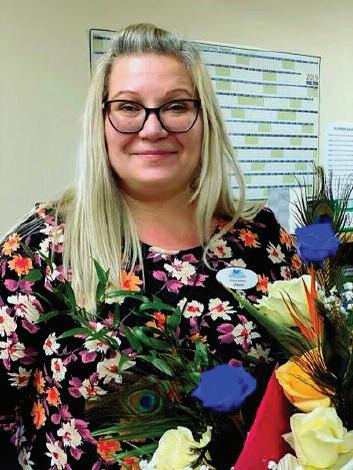
As the Director of Operations and Commissioning at Langdale Care Homes, and a seasoned nurse with over 20 years in the healthcare industry, I have witnessed first-hand the challenges posed by falls among elderly residents It is a subject close to my heart, and I feel it is of utmost importance to share our comprehensive and sensitive approach to this matter
Falls can have devastating effects on the physical, mental, and emotional health of our elderly residents leading to injury hospitalisation and a decline in confidence and independence However they are not an inevitable part of ageing With effective strategies and due diligence we can significantly reduce the risk and impact of falls Our approach is rooted in individualised care Each resident is unique and so too are their risks and vulnerabilities A thorough and personalised risk assessment is the cornerstone of our falls management strategy The assessment covers a wide range of areas from physical health mobility and medication to environmental factors within the home
In terms of physical health we pay keen attention to conditions known to increase fall risk such as poor vision arthritis and neurological impairments Regular health check-ups coupled with personalised exercise programmes to improve strength and balance have proven highly effective Our team works closely with residents ensuring they feel comfortable and confident in performing these exercises
Medication can also significantly influence fall risk As a nurse I understand the complex interactions between various drugs and how they can affect balance and coordination Therefore we regularly review residents'



Dr Tom Adler was a GP for 30 years He often witnessed the devastating effects of accidental falls on the faller their carers and also the resource implications for the NHS and Social Care
Tom
“Falls

“Although there were many innovations
In
increasing
of
and other more local issues which have driven up the rate of inflation over the last few years The impact of this meant that most manufacturers of electronic products had to increase their prices as costs spiralled This of course has impacted the end user The most dramatic impact has been on the Care Industry An industry that has lacked the support it desperately needs in these trying times

Courtney Thorne at the same time took a strategic decision to take a close look at our core products right down to component level the objective being to make us less vulnerable to future global supply chain issues, and to reduce the cost of each product with the amin of ensuring that we deliver the same high quality product at a cost protected price We had to ensure that this would happen without jeopar-
dising the superb levels of support we provide to our valued customer base
This ground up review involved all departments from Research and Development right through to the Field Service team (and everything in-between) This in-depth collaboration took time as we had to ensure that each and every element was refined perfected and tested to our (and our customers) rigorous requirements Whilst many organisations have limited-time or end of product line offers we are very pleased to announce a price reduction on our core Connect and Connect Health Nurse Call system ranges With flexible terms full integration with Care Apps celebrated service delivery and the most reliable and robust solution now at a new lower price there has never been a better time to talk to us about a new nurse call system For more information email us at: info@c-t co uk or see the advert on this page
33% of accidental falls are at night
• Automatically plays voice messages to remind loved ones to take care when they wake up
• Lights up gently to help navigating in the dark
• Suitable for use at home and in care homes
EXAMPLE VOICE MESSAGES:
• “David, take your time before you stand up, we love you”
• “Don’t get out of bed Emma Press your buzzer, we’ll come and help you”
Simple installation:
1 Plug into power socket
2. Record up to 5 personalised voice messages
3. Place by bedside
Peace of mind for you, independence for your loved ones.
Tel: 0114 437 1298 Email: hello@getbide com Website: www.getbide.com




Blaucomm’s Nurse Call
Messaging Service (NMS) is the market leading solution to remove the dependency on noisy nurse call panels and pagers, through its intelligent software which delivers the alerts straight to the care staff who need them Care homes are rapidly introducing smartphones for digital care planning and eMarnow the same devices can be used to receive the nurse call alerts they need for the residents under their care

Furthermore Blaucomm NMS is deeply linked into Person Centred Software MCM so call bell data is linked straight to care plans This unlocks a huge benefit to care homes to enhance the staff performance with how they accept and respond to residents which ultimately promotes better response times and visibility for management to audit their performance
The best part is that Blaucomm NMS links into your existing nurse call system - we work with all major
We find Blaucomm is a genuinely fantastic company with a reliable product
"We would highly

One Call Systems have developed one of the most reliable streamlined wireless nurse call systems on the market The rechargeable technology, water-resistant casings, and long-range radio capabilities set us apart
At the heart of the innovative Nursecall system is the One Call Display Panel which runs on an efficient internal radio network Designed to provide the highest level of performance and reliability The Display Panel allows staff to view live calls instantly Qualified installers will set up your system quickly and efficiently, ensuring minimal disruption and maximum benefits
With the ability to connect to the internet you can easily monitor your Home's call records from anywhere The panel is completely configurable from the display allowing you to customize your Home's settings to your preferences Trust our innovative system to provide the safety and efficiency your Home’s needs
The One Call Room Units are designed to withstand the rigours of your busy care environment There are five alternative versions - Pear push lead Pull Cords Out of Bed Door monitor and Leadless Units that you can choose from that best suit your needs
Watertight casings and fitted rechargeable batteries mean that you can rest assured that the units can be easily washed and will provide reliable service for up to 2 years on a single charge
The Call Logging system is designed to meet the safety and care requirements of Care Homes and nursing facilities The digital solution ensures complete and accurate logging of every call to prove evidence of care This invaluable tool ensures the safety of your residents
The Call Logging system is a must-have for any Care Home that wants to ensure they are providing the best possible care
Onecall provides the ability to monitor response times attendance duration and which Carer has attended which call You can be sure that you have complete oversight of your care provision Not only does this system provide valuable evidence of care, but it also helps to motivate and encourage staff to continue providing an exceptional level of care
Envivo Group is at the forefront of care and support sector driving innovation that enables people to live lives full of choices and opportunities They have 202 locations that are now using Mainteno Facilities Management software
“Our experience with Mainteno at TLC/Envivo Group has been really positive already Since its roll-out it has shown real and measurable benefits and has had a marked impact on the workload and assurance of our operations team
"We can now raise issues whether large or minor almost the instant they are spotted We can denote the priority with which they need to be tackled and track the progress of works to rectify them It has reduced almost completely the need to be directly contacting people to resolve issues which was an almost daily occurrence It has been obvious that the streamlined approach that it provides helps in prioritising works for maintenance teams and contractors, gives them plenty of detailed information as to the
exact issue and has given us an evidence base to show that issues are resolved in a consistent and effective timeframe
"The details that are available once a job is logged are invaluable to us as managers to assure ourselves that issues are not forgotten
PASS supports over 1 000 care providers every day giving them access to market leading care management tools hand in hand with unlimited 24/7/365 support from our dedicated and friendly PASS team
Assured by NHS Transformation Directorate PASS provides a secure platform that allows you to plan record and evidence the care you deliver The only assured solution built specifically for the home care sector it provides comprehensive real-time functionality and allows you to share progress against outcomes with customisable exportable reports CARE PLANNING AND ROSTERING FROM A SINGLE PLATFORM
To meet the wider needs of the PASS community
All-in-one PASS has recently been launched bringing advanced rostering functionality to our established digital care planning platform As a result advanced staff scheduling payroll and invoicing functionality is now seamlessly linked with care planning and reporting reducing the technical complexity risk and overhead associated with integrating two separate systems
As a result PASS now provides an all-in-one suite of digital care management tools available from a single platform designed to:
Save you time
• Increase the efficiency of your teams
Improve the quality of care
Deliver better outcomes
Our commitment to the continual evolution of PASS is further illustrated by the addition of GP
Connect The first product of its type to offer this feature PASS is still one of only a handful of digital care management solutions to have completed this NHS Digital integration, and is the only one offering it to the home care market
PASS GP Connect provides authorised social care staff with realtime access to their client s GP records
It makes medical information available when and where it is needed leading to improvements in both care safety and outcomes
Visibility of allergies vaccinations and medications especially useful for clients unable to reliably share their personal information
Using medical information to inform care planning
Ensuring that the right medication is delivered to the right person in the timeliest manner In one case this allowed the administration of antibiotics on a Friday evening aiding the service user s swift recovery from nfection
Available to all PASS users at no additional cost, PASS GP Connect is significantly more efficient than waiting for a GP response It s also a positive step forward on the path to the DHSC s goal for widespread digitally enabled care and is in full alignment with their ambition for joined up care for everyone Get in touch
www everylifetechnologies com hello@everylifetechnoloiges com

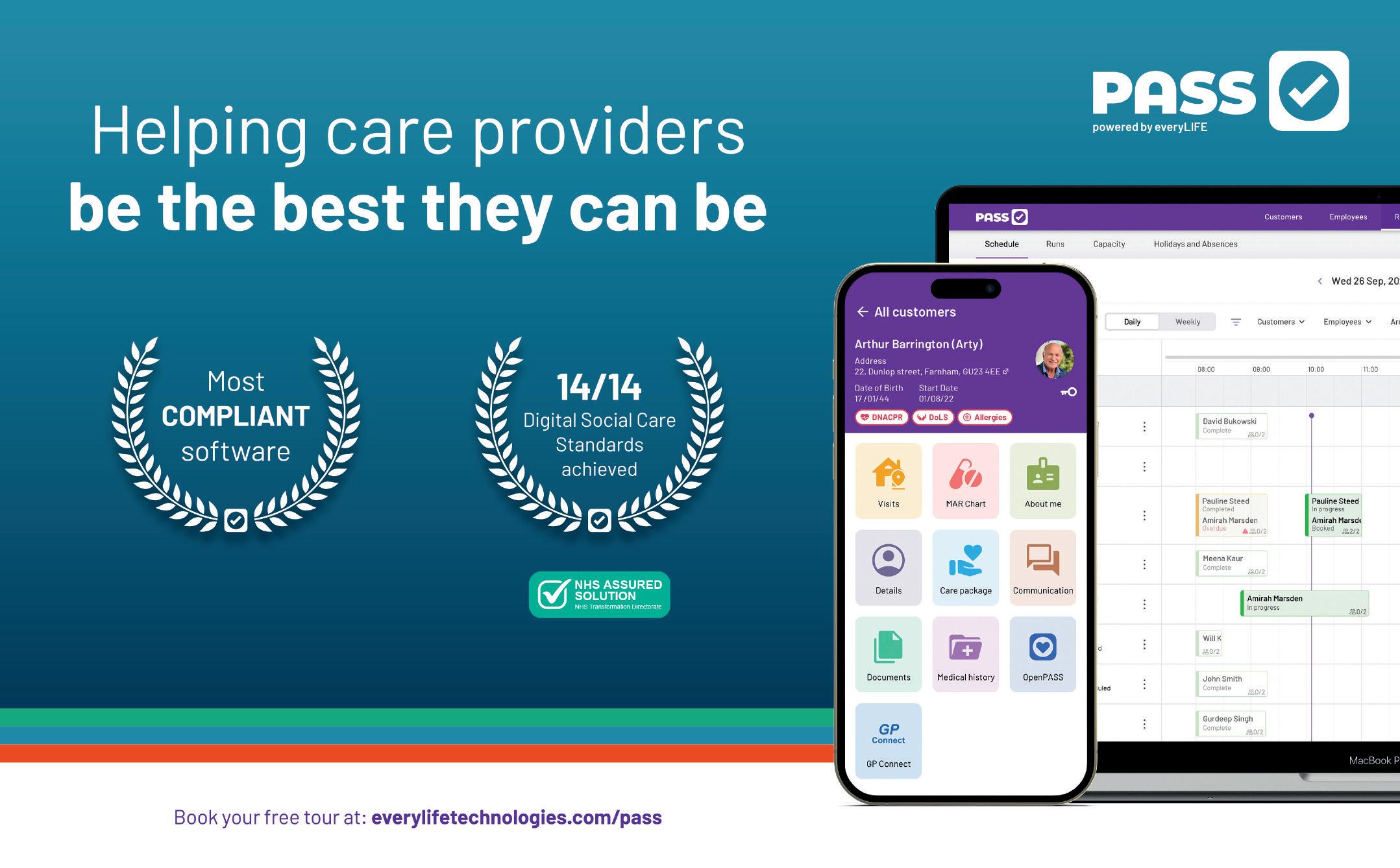
Over 425 000 people live in Care Homes in the UK Many have significant longterm health problems Some 65% have dementia, reduced cognitive functioning, and difficulties with communication Studies estimate that at least one-third of the Care Home population live with, and experience pain
Care Home residents with cognitive and speech disorders are at a higher risk of living with pain and musculoskeletal disorders (MSD) that affect muscles bones and joints
The Care Act 2014 emphasises the importance of measuring and improving the wellbeing of social care users However, there is no standard method of measuring quality of life in Care Homes nor are there ways to measure aspects of health such as pain, anxiety, or depression
The consensus is that pain is often under-recognised and under-treated in care homes

However pain is a subjective experience and cannot be adequately measured which is why mainstream approaches rely on self-reporting A key challenge to carers managing these experiences is the high proportion of residents who live with dementia
THERMAL IMAGING – A NON-INVASIVE OBJECTIVE SOLUTION
Thermal imaging or thermography is a non-invasive complementary diagnostic approach that creates a high-definition thermal map of your body (thermogram) Thermograms illustrate temperature patterns consistent with inflammation Inflammation is a vital part of the immune system s response to injury and infec-
tion
The appearance and location of thermal patterns helps to identify regions and sources of pain based on levels and differences in temperature and hence thermography can be used to diagnose pain objectively - invaluable when the resident is unable to communicate effectively
Thermography can also detect the source of pain and inflammation surrounding bone fractures entrapped nerves muscular trigger points and arthritis It enables the early detection of pressure injuries before any visible signs and provides diagnostic information indispensable in helping to arrive at identifying the sources of pain and an accurate diagnosis
Early detection of the source of the problem allows practitioners and residents to design a proactive treatment plan with specific interventions and treatments to mitigate the process of inflammation Thermography is also a highly effective tool for monitoring if a treatment protocol is working
Bunn et al in a meta-analysis of studies in 2020 found that thermography had such high diagnostic utility that they propose thermography as a first line MSD detection tool
By seeing what the human eye cannot see Thermidas thermal imaging solutions can assist carers and clinicians in locating and creating optimal treatment plans and alleviating pain
Stephen Taylor Thermidas UK
Book a free demo at www thermidas fi










(CONTINUED FROM PREVIOUS PAGE)
There are an increasing number of debt financing options open to care providers from alternative lenders through to grants In Kent for example Kent County Council is offering an interest-free loan to fund capital investment and growth projects Whilst these schemes will often require match-funding or come with a demonstratable job creation requirement they can offer a valuable way to reduce bank funding
Care businesses should always take specialist and independent advice based on their own specific situation before considering which lender to approach for borrowing or taking external investment Rachel Emmerson is a Partner and Abbey Watkins an Accountant in the Funding Team at Kreston Reeves Kreston Reeves offers accountancy, tax and business advice to a wide range of clients Visit www krestonreeves com

JJ Recruitment has the large database of well qualified applicants with experience in the health-care industry such as health care assistants senior carers and nurses from overseas We also have an expert team of solicitors for the necessary legal proceedings and advices WHY JJ? We have very minimal processing fees We assist you to get a sponsorship license Qualified and experienced candidates from overseas Tel: 01704 808227 www jjcarerecruitment co uk admin@jjrecruitment co uk

Global assists clients throughout the U K who specialise in the healthcare sector to achieve their objectives of purchase development and refinance We have organised over £1 8bn for clients in the past 30 years, providing clients with competitively priced funding to refinance existing debt ease cashflow and develop businesses further
From helping clients make their first purchase through to allowing groups to grow significantly in size we assist at every stage of your business expansion
Every proposal is individual and deserves to be treated that way, so we hope you will allow us to be of assistance to you and call us to chat through your plans and requirements, I am sure we will be able to tailor a facility to your requirements Call us on 01242 227172 or e-mail us at enquiries@globalbusinessfinance net


